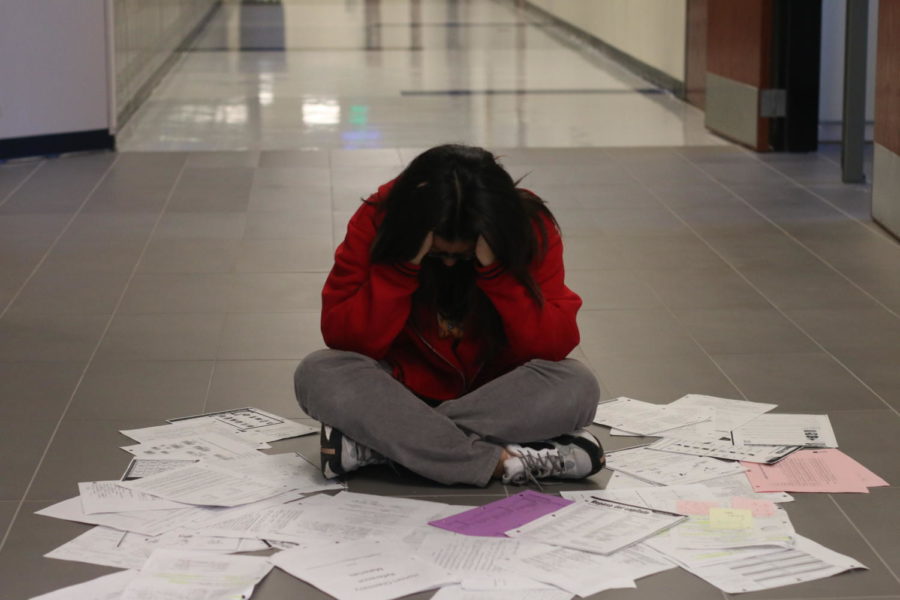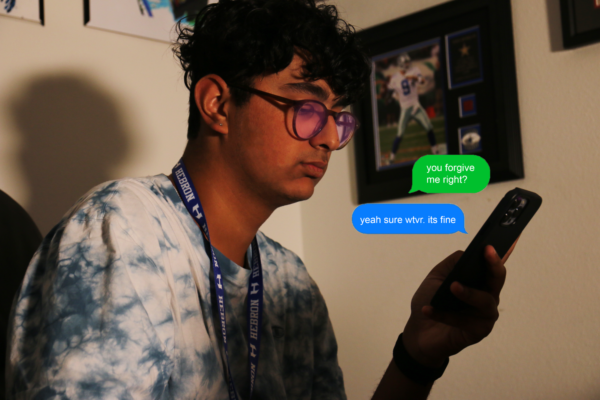The Pros and Cons of Homework: Is Homework Really Worth It?
Homework has been a long-debated topic in the realm of education. Homework used to be a given for teachers; all students were assigned homework. Nowadays, especially because of the initial year with COVID- 19, teachers are not assigning as much homework.
With COVID-19, the majority of students in a class do not complete homework. They sat around and texted while their classes were occurring. Some students have learned that they can get away with not completing it. Teachers are frustrated with the back and forth regarding homework so there has been a shift in the perspective. It is not assumed for each class anymore, but generally just assumed for certain core classes such as Math or Language Arts. So, what are the pros and cons of assigning homework to students?
The purpose of homework is to reinforce what students learn in the classroom and to prepare them for future academic tasks. However, there are a number of potential disadvantages to assigning homework. It can create more work for teachers and parents, be a source of stress for students, and can interfere with family time On the bright side, assigning homework can help students learn new material, help them develop study skills, and significantly reduce screen time.

The Cons of Homework
Completing homework incorrectly does more harm than good.

A large part of having homework is practicing a previous concept a student already learned. The student learns something that day during class, takes it home, and works on it a handful more times in order to instil the procedures and strategies in their head.
Occasionally, or sometimes more frequently with certain students, a student brings back a homework assignment almost all wrong. They didn’t pay attention during class and so when it came to the homework, they just guessed. As a teacher, it can be incredibly frustrating; the teacher is upset because they don’t know the concept and they’re starting to develop an incorrect way of solving or doing the concept.
If a student completes homework incorrectly, they become discouraged. They are also frustrated that they don’t understand the concept. They feel as if their time has been wasted. Well, because it kinda has. They spent 20 minutes, 45 minutes, or whatever it was, doing nothing beneficial with their time. The outcome they had from the homework didn’t create anything positive other than showing diligence in attempting to complete work.
Not Every Home Is Supportive of Completing Homework
For some students, their parents are incredibly supportive of the school; they continually check grades, they ask their students how school was that day, and some parents even help their students with their homework. This also creates a positive atmosphere to complete homework in. Students are more motivated and likely to complete their homework if someone else is showing interest in them completing it. Also, if the homework is challenging, it is better for the student’s level of understanding if an adult can help them.
Some parents could care less about school. Maybe the parent is so busy with work, they have no time to help and support their student. It could also be a circumstance where the parent struggled in school as well so they feel like individuals place too much emphasis regarding school.
In these instances where students are not supported, why would they do the homework? How could they do the homework? Students are generally motivated by things like getting their phone taken away or losing friend time, so if the parent doesn’t care enough for there to be possible negative outcomes, there might not be motivation there to do the homework.
It Discourages Opportunities for Other Activities
If students are doing homework, they are missing out on other activities. Spending time inside doing homework means no spending time outside on a bike. Spending time inside doing homework means not spending time watching a favorite TV show either. It is important for students to engage in other interests in their life outside of school. School goes alongside other interests a student has. School should not be the only thing they are worried about.
Play is an important part of a kid’s development. It gives kids the opportunity to be creative. Through being creative, they can develop in areas of dexterity, cognitive, emotional strength, and imagination, just to name a few. It is crucial for kids to run outside and play to make discoveries on their own.
Play can also strengthen a student’s interest in school . If they develop outside interests, they can apply these interests in a school setting. For example, if a student is interested in a specific football team, they might be provided with the opportunity to write a creative writing piece regarding a game played by that favorite team.
The Pros of Homework
Parents get more involved in their children’s learning.

When a parent knows more of what’s going on in a classroom, they can be more involved if they chose to do so! A parent can get more involved by helping their student with homework, working on the additional practice of what the student is currently learning, helping improve grades, and even asking the teacher questions.
Teachers most certainly appreciate when a parent wants to be involved in a student’s learning. It shows that they care. It also shows that they have their back when teaching the child. If a child is acting up, as a teacher, it is nice to know that the parent at home will support your efforts in trying to diminish a behavior or further understand a concept.
If requested by a parent, most teachers will even provide extra work for a student to practice more at home. Even though it might not account for any sort of credit, continually practicing a concept that the student does not understand will benefit them in the long run. Unfortunately, parents being supportive of homework is less common in the education world than you might think.
Even though the student is the one working on the homework, the homework is also the teacher providing the parent with the opportunity to speak up and become more involved. Teachers want parents to know what their child is working on during school. Teachers want parents to assist in making sure their student understands the concepts that are gone over during class.
Reinforces Learning and Practicing Good Study Habits
By having students complete homework, you are having them practice learning. Most things in life are learning. We constantly take in new information and remold it into a way that benefits us or a way we want to see it. With learning, we adapt new ways of doing something or even dislikes we might have. Students practicing a skill is important to mastering that skill. As time goes on, the hope is that students will realize they need to continually work on learning something in order to be a pro.
Practicing good study habits is a key outcome of homework. Most students are in school Kindergarten through 12th grade, with some even extending 15 years after 12th grade. Some individuals don’t realize the full extent of time they are in school. It is years and years and years. It is crucial to set yourself up for success by attending school for such a long time. By developing positive routines and effective methods of studying, a student will experience more wins during their time in school.
One of the more important study habits that develop from homework is t ime management skills . Developing the skill to know how long to spend on what things in life will allow a person to succeed. Students can use these skills on a daily basis to figure out how much time they will get to spend with friends or how long it takes them to get to and from school.
Time management skills are also so applicable to other things later in life. When students are learning time management skills with homework, they can apply this to spending time with friends, watching a television show, or even a job.
Can Reduce Screen Time

We spend so much time on devices, just about everyone included. We are on social media, reading articles, buying things, watching movies, etc. Especially now in the world of COVID- 19, even more, has been transferred to an online format. Students are on computers daily at most schools. When they get home, oftentimes students are on phones texting friends or on Snapchat. Completing homework instead of being on social media, means a reduced amount of time in front of a screen .
Now, some homework might be online, but not all homework is. Depending on the subject, teachers assign plenty of homework on paper. Most homework is on paper because teachers cannot assume a child has a device available at home to complete homework. Some families are low income and can’t afford to have a computer at home. Assigning homework on the computer would put low-income families at a disadvantage.
Related: What are the Pros and Cons of Virtual Learning?
The Bottom Line – Pros and Cons of Homework
Is assigning homework beneficial or hurtful? Every subject, teacher, and circumstance is different.
Homework can be a mainly positive item for some students and mainly a negative item for other students. The reason why it is such a debate is that a teacher is assigning homework for an entire class, not just one student. Even if they know each student well, there is no way that every single student has a supportive household.
If a teacher assigns homework, they are benefiting only part of the students. If a teacher doesn’t assign homework, they are giving the students, who would be completing it, a disadvantage.
Do the pros outweigh the cons with homework? What do you think?
Classroom Management Homework
Written by Moneywise Teacher Staff
This post was written by an awesome member of the Moneywise Teacher writing staff!

Do Substitute Teachers Need a Degree?

Do Teachers Get Social Security?
© 2022 The Moneywise Teacher . Find the best education discounts all in one convenient place! All rights reserved. Privacy Policy | Earnings & Affiliate Disclaimers
- International edition
- Australia edition
- Europe edition

Homework: is it worth the hassle?
Parents and educators question the value of setting assignments for students. But what does the neuroscience say?
Like all teachers, I’ve spent many hours correcting homework. Yet there’s a debate over whether we should be setting it at all.
I teach both primary and secondary, and regularly find myself drawn into the argument on the reasoning behind it – parents, and sometimes colleagues, question its validity. Parent-teacher interviews can become consumed by how much trouble students have completing assignments. All of which has led me to question the neuroscience behind setting homework. Is it worth it?
Increasingly, there’s a divide between those who support the need for homework and those who suggest the time would be better spent with family and developing relationships. The anxiety related to homework is frequently reviewed.
A survey of high-performing high schools by the Stanford Graduate School of Education, for example, found that 56% of students considered homework a primary source of stress. These same students reported that the demands of homework caused sleep deprivation and other health problems, as well as less time for friends, family and extracurricular pursuits.
Working memory?
When students learn in the classroom, they are using their short-term or working memory. This information is continually updated during the class. On leaving the classroom, the information in the working memory is replaced by the topic in the next class.
Adults experience a similar reaction when they walk into a new room and forget why they are there. The new set of sensory information – lighting, odours, temperature – enters their working memory and any pre-existing information is displaced. It’s only when the person returns to the same environment that they remember the key information.
But education is about more than memorising facts. Students need to access the information in ways that are relevant to their world, and to transfer knowledge to new situations.
Many of us will have struggled to remember someone’s name when we meet them in an unexpected environment (a workmate at the gym, maybe), and we are more likely to remember them again once we’ve seen them multiple times in different places. Similarly, students must practise their skills in different environments.
Revising the key skills learned in the classroom during homework increases the likelihood of a student remembering and being able to use those skills in a variety of situations in the future, contributing to their overall education.
The link between homework and educational achievement is supported by research: a meta-analysis of studies between 1987 and 2003 found that: “With only rare exceptions, the relationship between the amount of homework students do and their achievement outcomes was found to be positive and statistically significant.”
The right type of work
The homework debate is often split along the lines of primary school compared with secondary school. Education researcher Professor John Hattie, who has ranked various influences on student learning and achievement, found that homework in primary schools has a negligible effect (most homework set has little to no impact on a student’s overall learning). However, it makes a bigger difference in secondary schools.
His explanation is that students in secondary schools are often given tasks that reinforce key skills learned in the classroom that day, whereas primary students may be asked to complete separate assignments. “The worst thing you can do with homework is give kids projects; the best thing you can do is reinforce something you’ve already learned,” he told the BBC in 2014.
So homework can be effective when it’s the right type of homework. In my own practice, the primary students I teach will often be asked to find real-life examples of the concept taught instead of traditional homework tasks, while homework for secondary students consolidates the key concepts covered in the classroom. For secondary in particular, I find a general set of rules useful:
- Set work that’s relevant. This includes elaborating on information addressed in the class or opportunities for students to explore the key concept in areas of their own interest.
- Make sure students can complete the homework. Pitch it to a student’s age and skills – anxiety will only limit their cognitive abilities in that topic. A high chance of success will increase the reward stimulation in the brain.
- Get parents involved, without the homework being a point of conflict with students. Make it a sharing of information, rather than a battle.
- Check the homework with the students afterwards. This offers a chance to review the key concepts and allow the working memory to become part of the long-term memory.
While there is no data on the effectiveness of homework in different subjects, these general rules could be applied equally to languages, mathematics or humanities. And by setting the right type of homework, you’ll help to reinforce key concepts in a new environment, allowing the information you teach to be used in a variety of contexts in the future.
Helen Silvester is a writer for npj Science of Learning Community
Follow us on Twitter via @GuardianTeach . Join the Guardian Teacher Network for lesson resources, comment and job opportunities , direct to your inbox.
- Teacher Network
- Secondary schools
Comments (…)
Most viewed.
Does Homework Really Help Students Learn?
A conversation with a Wheelock researcher, a BU student, and a fourth-grade teacher

“Quality homework is engaging and relevant to kids’ lives,” says Wheelock’s Janine Bempechat. “It gives them autonomy and engages them in the community and with their families. In some subjects, like math, worksheets can be very helpful. It has to do with the value of practicing over and over.” Photo by iStock/Glenn Cook Photography
Do your homework.
If only it were that simple.
Educators have debated the merits of homework since the late 19th century. In recent years, amid concerns of some parents and teachers that children are being stressed out by too much homework, things have only gotten more fraught.
“Homework is complicated,” says developmental psychologist Janine Bempechat, a Wheelock College of Education & Human Development clinical professor. The author of the essay “ The Case for (Quality) Homework—Why It Improves Learning and How Parents Can Help ” in the winter 2019 issue of Education Next , Bempechat has studied how the debate about homework is influencing teacher preparation, parent and student beliefs about learning, and school policies.
She worries especially about socioeconomically disadvantaged students from low-performing schools who, according to research by Bempechat and others, get little or no homework.
BU Today sat down with Bempechat and Erin Bruce (Wheelock’17,’18), a new fourth-grade teacher at a suburban Boston school, and future teacher freshman Emma Ardizzone (Wheelock) to talk about what quality homework looks like, how it can help children learn, and how schools can equip teachers to design it, evaluate it, and facilitate parents’ role in it.
BU Today: Parents and educators who are against homework in elementary school say there is no research definitively linking it to academic performance for kids in the early grades. You’ve said that they’re missing the point.
Bempechat : I think teachers assign homework in elementary school as a way to help kids develop skills they’ll need when they’re older—to begin to instill a sense of responsibility and to learn planning and organizational skills. That’s what I think is the greatest value of homework—in cultivating beliefs about learning and skills associated with academic success. If we greatly reduce or eliminate homework in elementary school, we deprive kids and parents of opportunities to instill these important learning habits and skills.
We do know that beginning in late middle school, and continuing through high school, there is a strong and positive correlation between homework completion and academic success.
That’s what I think is the greatest value of homework—in cultivating beliefs about learning and skills associated with academic success.
You talk about the importance of quality homework. What is that?
Quality homework is engaging and relevant to kids’ lives. It gives them autonomy and engages them in the community and with their families. In some subjects, like math, worksheets can be very helpful. It has to do with the value of practicing over and over.

What are your concerns about homework and low-income children?
The argument that some people make—that homework “punishes the poor” because lower-income parents may not be as well-equipped as affluent parents to help their children with homework—is very troubling to me. There are no parents who don’t care about their children’s learning. Parents don’t actually have to help with homework completion in order for kids to do well. They can help in other ways—by helping children organize a study space, providing snacks, being there as a support, helping children work in groups with siblings or friends.
Isn’t the discussion about getting rid of homework happening mostly in affluent communities?
Yes, and the stories we hear of kids being stressed out from too much homework—four or five hours of homework a night—are real. That’s problematic for physical and mental health and overall well-being. But the research shows that higher-income students get a lot more homework than lower-income kids.
Teachers may not have as high expectations for lower-income children. Schools should bear responsibility for providing supports for kids to be able to get their homework done—after-school clubs, community support, peer group support. It does kids a disservice when our expectations are lower for them.
The conversation around homework is to some extent a social class and social justice issue. If we eliminate homework for all children because affluent children have too much, we’re really doing a disservice to low-income children. They need the challenge, and every student can rise to the challenge with enough supports in place.
What did you learn by studying how education schools are preparing future teachers to handle homework?
My colleague, Margarita Jimenez-Silva, at the University of California, Davis, School of Education, and I interviewed faculty members at education schools, as well as supervising teachers, to find out how students are being prepared. And it seemed that they weren’t. There didn’t seem to be any readings on the research, or conversations on what high-quality homework is and how to design it.
Erin, what kind of training did you get in handling homework?
Bruce : I had phenomenal professors at Wheelock, but homework just didn’t come up. I did lots of student teaching. I’ve been in classrooms where the teachers didn’t assign any homework, and I’ve been in rooms where they assigned hours of homework a night. But I never even considered homework as something that was my decision. I just thought it was something I’d pull out of a book and it’d be done.
I started giving homework on the first night of school this year. My first assignment was to go home and draw a picture of the room where you do your homework. I want to know if it’s at a table and if there are chairs around it and if mom’s cooking dinner while you’re doing homework.
The second night I asked them to talk to a grown-up about how are you going to be able to get your homework done during the week. The kids really enjoyed it. There’s a running joke that I’m teaching life skills.
Friday nights, I read all my kids’ responses to me on their homework from the week and it’s wonderful. They pour their hearts out. It’s like we’re having a conversation on my couch Friday night.
It matters to know that the teacher cares about you and that what you think matters to the teacher. Homework is a vehicle to connect home and school…for parents to know teachers are welcoming to them and their families.
Bempechat : I can’t imagine that most new teachers would have the intuition Erin had in designing homework the way she did.
Ardizzone : Conversations with kids about homework, feeling you’re being listened to—that’s such a big part of wanting to do homework….I grew up in Westchester County. It was a pretty demanding school district. My junior year English teacher—I loved her—she would give us feedback, have meetings with all of us. She’d say, “If you have any questions, if you have anything you want to talk about, you can talk to me, here are my office hours.” It felt like she actually cared.
Bempechat : It matters to know that the teacher cares about you and that what you think matters to the teacher. Homework is a vehicle to connect home and school…for parents to know teachers are welcoming to them and their families.
Ardizzone : But can’t it lead to parents being overbearing and too involved in their children’s lives as students?
Bempechat : There’s good help and there’s bad help. The bad help is what you’re describing—when parents hover inappropriately, when they micromanage, when they see their children confused and struggling and tell them what to do.
Good help is when parents recognize there’s a struggle going on and instead ask informative questions: “Where do you think you went wrong?” They give hints, or pointers, rather than saying, “You missed this,” or “You didn’t read that.”
Bruce : I hope something comes of this. I hope BU or Wheelock can think of some way to make this a more pressing issue. As a first-year teacher, it was not something I even thought about on the first day of school—until a kid raised his hand and said, “Do we have homework?” It would have been wonderful if I’d had a plan from day one.
Explore Related Topics:
- Share this story
Senior Contributing Editor

Sara Rimer A journalist for more than three decades, Sara Rimer worked at the Miami Herald , Washington Post and, for 26 years, the New York Times , where she was the New England bureau chief, and a national reporter covering education, aging, immigration, and other social justice issues. Her stories on the death penalty’s inequities were nominated for a Pulitzer Prize and cited in the U.S. Supreme Court’s decision outlawing the execution of people with intellectual disabilities. Her journalism honors include Columbia University’s Meyer Berger award for in-depth human interest reporting. She holds a BA degree in American Studies from the University of Michigan. Profile
She can be reached at [email protected] .
Comments & Discussion
Boston University moderates comments to facilitate an informed, substantive, civil conversation. Abusive, profane, self-promotional, misleading, incoherent or off-topic comments will be rejected. Moderators are staffed during regular business hours (EST) and can only accept comments written in English. Statistics or facts must include a citation or a link to the citation.
There are 81 comments on Does Homework Really Help Students Learn?
Insightful! The values about homework in elementary schools are well aligned with my intuition as a parent.
when i finish my work i do my homework and i sometimes forget what to do because i did not get enough sleep
same omg it does not help me it is stressful and if I have it in more than one class I hate it.
Same I think my parent wants to help me but, she doesn’t care if I get bad grades so I just try my best and my grades are great.
I think that last question about Good help from parents is not know to all parents, we do as our parents did or how we best think it can be done, so maybe coaching parents or giving them resources on how to help with homework would be very beneficial for the parent on how to help and for the teacher to have consistency and improve homework results, and of course for the child. I do see how homework helps reaffirm the knowledge obtained in the classroom, I also have the ability to see progress and it is a time I share with my kids
The answer to the headline question is a no-brainer – a more pressing problem is why there is a difference in how students from different cultures succeed. Perfect example is the student population at BU – why is there a majority population of Asian students and only about 3% black students at BU? In fact at some universities there are law suits by Asians to stop discrimination and quotas against admitting Asian students because the real truth is that as a group they are demonstrating better qualifications for admittance, while at the same time there are quotas and reduced requirements for black students to boost their portion of the student population because as a group they do more poorly in meeting admissions standards – and it is not about the Benjamins. The real problem is that in our PC society no one has the gazuntas to explore this issue as it may reveal that all people are not created equal after all. Or is it just environmental cultural differences??????
I get you have a concern about the issue but that is not even what the point of this article is about. If you have an issue please take this to the site we have and only post your opinion about the actual topic
This is not at all what the article is talking about.
This literally has nothing to do with the article brought up. You should really take your opinions somewhere else before you speak about something that doesn’t make sense.
we have the same name
so they have the same name what of it?
lol you tell her
totally agree
What does that have to do with homework, that is not what the article talks about AT ALL.
Yes, I think homework plays an important role in the development of student life. Through homework, students have to face challenges on a daily basis and they try to solve them quickly.I am an intense online tutor at 24x7homeworkhelp and I give homework to my students at that level in which they handle it easily.
More than two-thirds of students said they used alcohol and drugs, primarily marijuana, to cope with stress.
You know what’s funny? I got this assignment to write an argument for homework about homework and this article was really helpful and understandable, and I also agree with this article’s point of view.
I also got the same task as you! I was looking for some good resources and I found this! I really found this article useful and easy to understand, just like you! ^^
i think that homework is the best thing that a child can have on the school because it help them with their thinking and memory.
I am a child myself and i think homework is a terrific pass time because i can’t play video games during the week. It also helps me set goals.
Homework is not harmful ,but it will if there is too much
I feel like, from a minors point of view that we shouldn’t get homework. Not only is the homework stressful, but it takes us away from relaxing and being social. For example, me and my friends was supposed to hang at the mall last week but we had to postpone it since we all had some sort of work to do. Our minds shouldn’t be focused on finishing an assignment that in realty, doesn’t matter. I completely understand that we should have homework. I have to write a paper on the unimportance of homework so thanks.
homework isn’t that bad
Are you a student? if not then i don’t really think you know how much and how severe todays homework really is
i am a student and i do not enjoy homework because i practice my sport 4 out of the five days we have school for 4 hours and that’s not even counting the commute time or the fact i still have to shower and eat dinner when i get home. its draining!
i totally agree with you. these people are such boomers
why just why
they do make a really good point, i think that there should be a limit though. hours and hours of homework can be really stressful, and the extra work isn’t making a difference to our learning, but i do believe homework should be optional and extra credit. that would make it for students to not have the leaning stress of a assignment and if you have a low grade you you can catch up.
Studies show that homework improves student achievement in terms of improved grades, test results, and the likelihood to attend college. Research published in the High School Journal indicates that students who spent between 31 and 90 minutes each day on homework “scored about 40 points higher on the SAT-Mathematics subtest than their peers, who reported spending no time on homework each day, on average.” On both standardized tests and grades, students in classes that were assigned homework outperformed 69% of students who didn’t have homework. A majority of studies on homework’s impact – 64% in one meta-study and 72% in another – showed that take home assignments were effective at improving academic achievement. Research by the Institute for the Study of Labor (IZA) concluded that increased homework led to better GPAs and higher probability of college attendance for high school boys. In fact, boys who attended college did more than three hours of additional homework per week in high school.
So how are your measuring student achievement? That’s the real question. The argument that doing homework is simply a tool for teaching responsibility isn’t enough for me. We can teach responsibility in a number of ways. Also the poor argument that parents don’t need to help with homework, and that students can do it on their own, is wishful thinking at best. It completely ignores neurodiverse students. Students in poverty aren’t magically going to find a space to do homework, a friend’s or siblings to help them do it, and snacks to eat. I feel like the author of this piece has never set foot in a classroom of students.
THIS. This article is pathetic coming from a university. So intellectually dishonest, refusing to address the havoc of capitalism and poverty plays on academic success in life. How can they in one sentence use poor kids in an argument and never once address that poor children have access to damn near 0 of the resources affluent kids have? Draw me a picture and let’s talk about feelings lmao what a joke is that gonna put food in their belly so they can have the calories to burn in order to use their brain to study? What about quiet their 7 other siblings that they share a single bedroom with for hours? Is it gonna force the single mom to magically be at home and at work at the same time to cook food while you study and be there to throw an encouraging word?
Also the “parents don’t need to be a parent and be able to guide their kid at all academically they just need to exist in the next room” is wild. Its one thing if a parent straight up is not equipped but to say kids can just figured it out is…. wow coming from an educator What’s next the teacher doesn’t need to teach cause the kid can just follow the packet and figure it out?
Well then get a tutor right? Oh wait you are poor only affluent kids can afford a tutor for their hours of homework a day were they on average have none of the worries a poor child does. Does this address that poor children are more likely to also suffer abuse and mental illness? Like mentioned what about kids that can’t learn or comprehend the forced standardized way? Just let em fail? These children regularly are not in “special education”(some of those are a joke in their own and full of neglect and abuse) programs cause most aren’t even acknowledged as having disabilities or disorders.
But yes all and all those pesky poor kids just aren’t being worked hard enough lol pretty sure poor children’s existence just in childhood is more work, stress, and responsibility alone than an affluent child’s entire life cycle. Love they never once talked about the quality of education in the classroom being so bad between the poor and affluent it can qualify as segregation, just basically blamed poor people for being lazy, good job capitalism for failing us once again!
why the hell?
you should feel bad for saying this, this article can be helpful for people who has to write a essay about it
This is more of a political rant than it is about homework
I know a teacher who has told his students their homework is to find something they are interested in, pursue it and then come share what they learn. The student responses are quite compelling. One girl taught herself German so she could talk to her grandfather. One boy did a research project on Nelson Mandela because the teacher had mentioned him in class. Another boy, a both on the autism spectrum, fixed his family’s computer. The list goes on. This is fourth grade. I think students are highly motivated to learn, when we step aside and encourage them.
The whole point of homework is to give the students a chance to use the material that they have been presented with in class. If they never have the opportunity to use that information, and discover that it is actually useful, it will be in one ear and out the other. As a science teacher, it is critical that the students are challenged to use the material they have been presented with, which gives them the opportunity to actually think about it rather than regurgitate “facts”. Well designed homework forces the student to think conceptually, as opposed to regurgitation, which is never a pretty sight
Wonderful discussion. and yes, homework helps in learning and building skills in students.
not true it just causes kids to stress
Homework can be both beneficial and unuseful, if you will. There are students who are gifted in all subjects in school and ones with disabilities. Why should the students who are gifted get the lucky break, whereas the people who have disabilities suffer? The people who were born with this “gift” go through school with ease whereas people with disabilities struggle with the work given to them. I speak from experience because I am one of those students: the ones with disabilities. Homework doesn’t benefit “us”, it only tears us down and put us in an abyss of confusion and stress and hopelessness because we can’t learn as fast as others. Or we can’t handle the amount of work given whereas the gifted students go through it with ease. It just brings us down and makes us feel lost; because no mater what, it feels like we are destined to fail. It feels like we weren’t “cut out” for success.
homework does help
here is the thing though, if a child is shoved in the face with a whole ton of homework that isn’t really even considered homework it is assignments, it’s not helpful. the teacher should make homework more of a fun learning experience rather than something that is dreaded
This article was wonderful, I am going to ask my teachers about extra, or at all giving homework.
I agree. Especially when you have homework before an exam. Which is distasteful as you’ll need that time to study. It doesn’t make any sense, nor does us doing homework really matters as It’s just facts thrown at us.
Homework is too severe and is just too much for students, schools need to decrease the amount of homework. When teachers assign homework they forget that the students have other classes that give them the same amount of homework each day. Students need to work on social skills and life skills.
I disagree.
Beyond achievement, proponents of homework argue that it can have many other beneficial effects. They claim it can help students develop good study habits so they are ready to grow as their cognitive capacities mature. It can help students recognize that learning can occur at home as well as at school. Homework can foster independent learning and responsible character traits. And it can give parents an opportunity to see what’s going on at school and let them express positive attitudes toward achievement.
Homework is helpful because homework helps us by teaching us how to learn a specific topic.
As a student myself, I can say that I have almost never gotten the full 9 hours of recommended sleep time, because of homework. (Now I’m writing an essay on it in the middle of the night D=)
I am a 10 year old kid doing a report about “Is homework good or bad” for homework before i was going to do homework is bad but the sources from this site changed my mind!
Homeowkr is god for stusenrs
I agree with hunter because homework can be so stressful especially with this whole covid thing no one has time for homework and every one just wants to get back to there normal lives it is especially stressful when you go on a 2 week vaca 3 weeks into the new school year and and then less then a week after you come back from the vaca you are out for over a month because of covid and you have no way to get the assignment done and turned in
As great as homework is said to be in the is article, I feel like the viewpoint of the students was left out. Every where I go on the internet researching about this topic it almost always has interviews from teachers, professors, and the like. However isn’t that a little biased? Of course teachers are going to be for homework, they’re not the ones that have to stay up past midnight completing the homework from not just one class, but all of them. I just feel like this site is one-sided and you should include what the students of today think of spending four hours every night completing 6-8 classes worth of work.
Are we talking about homework or practice? Those are two very different things and can result in different outcomes.
Homework is a graded assignment. I do not know of research showing the benefits of graded assignments going home.
Practice; however, can be extremely beneficial, especially if there is some sort of feedback (not a grade but feedback). That feedback can come from the teacher, another student or even an automated grading program.
As a former band director, I assigned daily practice. I never once thought it would be appropriate for me to require the students to turn in a recording of their practice for me to grade. Instead, I had in-class assignments/assessments that were graded and directly related to the practice assigned.
I would really like to read articles on “homework” that truly distinguish between the two.
oof i feel bad good luck!
thank you guys for the artical because I have to finish an assingment. yes i did cite it but just thanks
thx for the article guys.
Homework is good
I think homework is helpful AND harmful. Sometimes u can’t get sleep bc of homework but it helps u practice for school too so idk.
I agree with this Article. And does anyone know when this was published. I would like to know.
It was published FEb 19, 2019.
Studies have shown that homework improved student achievement in terms of improved grades, test results, and the likelihood to attend college.
i think homework can help kids but at the same time not help kids
This article is so out of touch with majority of homes it would be laughable if it wasn’t so incredibly sad.
There is no value to homework all it does is add stress to already stressed homes. Parents or adults magically having the time or energy to shepherd kids through homework is dome sort of 1950’s fantasy.
What lala land do these teachers live in?
Homework gives noting to the kid
Homework is Bad
homework is bad.
why do kids even have homework?
Comments are closed.
Latest from Bostonia
Alum has traveled the world to witness total solar eclipses, opening doors: rhonda harrison (eng’98,’04, grs’04), campus reacts and responds to israel-hamas war, reading list: what the pandemic revealed, remembering com’s david anable, cas’ john stone, “intellectual brilliance and brilliant kindness”, one good deed: christine kannler (cas’96, sph’00, camed’00), william fairfield warren society inducts new members, spreading art appreciation, restoring the “black angels” to medical history, in the kitchen with jacques pépin, feedback: readers weigh in on bu’s new president, com’s new expert on misinformation, and what’s really dividing the nation, the gifts of great teaching, sth’s walter fluker honored by roosevelt institute, alum’s debut book is a ramadan story for children, my big idea: covering construction sites with art, former terriers power new professional women’s hockey league, five trailblazing alums to celebrate during women’s history month, alum beata coloyan is boston mayor michelle wu’s “eyes and ears” in boston neighborhoods, bu alum nina yoshida nelsen (cfa’01,’03) named artistic director of boston lyric opera.
Is Homework Valuable or Not? Try Looking at Quality Instead

- Share article
Is there an end in sight to the “homework wars?”
Homework is one those never-ending debates in K-12 circles that re-emerges every few years, bringing with it a new collection of headlines. Usually they bemoan how much homework students have, or highlight districts and even states that have sought to cap or eliminate homework .
Now, a new analysis from the Center for American Progress suggests a more fruitful way of thinking about this problem. Maybe, it suggests, what we should be doing is looking at what students are routinely being asked to do in take-home assignments, how well that homework supports their learning goals (or doesn’t), and make changes from there.
The analysis of nearly 200 pieces of homework concludes that much of what students are asked to do aligns to the Common Core State Standards—a testament to how pervasive the standards are in the U.S. education system, even though many states have tweaked, renamed, or replaced them. However, most of the homework embodied basic, procedural components of the standards, rather than the more difficult skills—such as analyzing or extending their knowledge to new problems.
“We were surprised by the degree of alignment. And we were also surprised by the degree that the homework was rote, and how much some of this stuff felt like Sudoku,” said Ulrich Boser, a senior fellow at CAP. “It made the homework debate make a lot more sense about why parents are frustrated.”
It is also similar to the findings of groups like the Education Trust, which have found that classwork tends to be aligned to state standards, but not all that rigorous.
Collecting Homework Samples
The CAP analysis appears to be one of the first studies to look at homework rigor using a national survey lens. Many studies of homework are based on one school or one district’s assignments, which obviously limits their applicability. Attempts to synthesize all this research have led to some hard-to-parse conclusions. One of the most cited studies concludes there’s some connection for grades 6-12 between homework and test scores, but less so for elementary students, and less of an impact on actual grades.
Another problem is that students’ experiences with homework seem to vary so dramatically: A Brookings Institution report based on survey data from the National Assessment of Educational Progress concluded that, while on average students aren’t overburdened by homework, a subset of students do appear to get hours upon hours.
The CAP analysis, instead, was based on getting a sample of parents from across the country to send in examples of their children’s homework. The researchers used MTurk, a crowdsourcing service offered by Amazon.com to recruit parents. Of the 372 parents who responded, the researchers got a pile of 187 useable assignments. Next, John Smithson, an emeritus researcher at the University of Wisconsin-Madison, had teams grade them on a taxonomy looking at both the content and the “cognitive demand,” or difficulty, of the work. The index fell on a 1 to 10 scale, with a score 4 to 6 range considered as “good” alignment.
The results? On average, math assignments fell within this range, while the ELA ones were slightly weaker, in the 3 to 5 range.
But the real eye-opening graphic is this one, which shows that by far the assignments were mostly low-level.

This makes some logical sense when you think about it. Just as with teaching and testing, it is much easier to write homework assignments prioritizing basic arithmetic drills and fill-in-the-blank vocabulary words than ones that get students to “prove” or “generalize” some tenet. (I suspect prepackaged curricula, too, probably lean more toward rote stuff than cognitively demanding exercises.)
Here’s another explanation: Many teachers believe homework should be for practicing known content, not learning something new. This is partially to help close the “homework gap” that surfaces because some students can access parent help or help via technology, while other students can’t. It’s possible that teachers are purposefully giving lower-level work to their students to take home for this reason.
To be sure, Boser said, it’s not that all lower-level work is intrinsically bad: Memorization does have a place in learning. But assignments like color-in-the-blank and word searches are probably just a waste of students’ time. “Homework assignments,” the study says, “should be thought-provoking.”
Study Limitations
The study does come with some significant limitations, so you must use caution in discussing its results. The surveyed population differs from the population at large, overrepresenting mothers over fathers and parents of K-5 students, and underrepresenting black parents. Also, the majority of the assignments the parents sent in came from the elementary grades.
The report makes suggestions on how districts can strategically improve the quality of their homework, rather than deciding to chuck it out altogether.
One is to is to audit homework assignments to make sure they’re actually useful at building some of the more difficult skills. Another is to extend the “curriculum revolution” of the last decade, which has focused more attention on the quality and alignment of textbooks and materials, to homework. A third is to use appropriate technology so students can access out-of-school supports for challenging homework.
A version of this news article first appeared in the Curriculum Matters blog.
Sign Up for EdWeek Update
Does homework really work?
by: Leslie Crawford | Updated: December 12, 2023
Print article

You know the drill. It’s 10:15 p.m., and the cardboard-and-toothpick Golden Gate Bridge is collapsing. The pages of polynomials have been abandoned. The paper on the Battle of Waterloo seems to have frozen in time with Napoleon lingering eternally over his breakfast at Le Caillou. Then come the tears and tantrums — while we parents wonder, Does the gain merit all this pain? Is this just too much homework?
However the drama unfolds night after night, year after year, most parents hold on to the hope that homework (after soccer games, dinner, flute practice, and, oh yes, that childhood pastime of yore known as playing) advances their children academically.
But what does homework really do for kids? Is the forest’s worth of book reports and math and spelling sheets the average American student completes in their 12 years of primary schooling making a difference? Or is it just busywork?
Homework haterz
Whether or not homework helps, or even hurts, depends on who you ask. If you ask my 12-year-old son, Sam, he’ll say, “Homework doesn’t help anything. It makes kids stressed-out and tired and makes them hate school more.”
Nothing more than common kid bellyaching?
Maybe, but in the fractious field of homework studies, it’s worth noting that Sam’s sentiments nicely synopsize one side of the ivory tower debate. Books like The End of Homework , The Homework Myth , and The Case Against Homework the film Race to Nowhere , and the anguished parent essay “ My Daughter’s Homework is Killing Me ” make the case that homework, by taking away precious family time and putting kids under unneeded pressure, is an ineffective way to help children become better learners and thinkers.
One Canadian couple took their homework apostasy all the way to the Supreme Court of Canada. After arguing that there was no evidence that it improved academic performance, they won a ruling that exempted their two children from all homework.
So what’s the real relationship between homework and academic achievement?
How much is too much?
To answer this question, researchers have been doing their homework on homework, conducting and examining hundreds of studies. Chris Drew Ph.D., founder and editor at The Helpful Professor recently compiled multiple statistics revealing the folly of today’s after-school busy work. Does any of the data he listed below ring true for you?
• 45 percent of parents think homework is too easy for their child, primarily because it is geared to the lowest standard under the Common Core State Standards .
• 74 percent of students say homework is a source of stress , defined as headaches, exhaustion, sleep deprivation, weight loss, and stomach problems.
• Students in high-performing high schools spend an average of 3.1 hours a night on homework , even though 1 to 2 hours is the optimal duration, according to a peer-reviewed study .
Not included in the list above is the fact many kids have to abandon activities they love — like sports and clubs — because homework deprives them of the needed time to enjoy themselves with other pursuits.
Conversely, The Helpful Professor does list a few pros of homework, noting it teaches discipline and time management, and helps parents know what’s being taught in the class.
The oft-bandied rule on homework quantity — 10 minutes a night per grade (starting from between 10 to 20 minutes in first grade) — is listed on the National Education Association’s website and the National Parent Teacher Association’s website , but few schools follow this rule.
Do you think your child is doing excessive homework? Harris Cooper Ph.D., author of a meta-study on homework , recommends talking with the teacher. “Often there is a miscommunication about the goals of homework assignments,” he says. “What appears to be problematic for kids, why they are doing an assignment, can be cleared up with a conversation.” Also, Cooper suggests taking a careful look at how your child is doing the assignments. It may seem like they’re taking two hours, but maybe your child is wandering off frequently to get a snack or getting distracted.
Less is often more
If your child is dutifully doing their work but still burning the midnight oil, it’s worth intervening to make sure your child gets enough sleep. A 2012 study of 535 high school students found that proper sleep may be far more essential to brain and body development.
For elementary school-age children, Cooper’s research at Duke University shows there is no measurable academic advantage to homework. For middle-schoolers, Cooper found there is a direct correlation between homework and achievement if assignments last between one to two hours per night. After two hours, however, achievement doesn’t improve. For high schoolers, Cooper’s research suggests that two hours per night is optimal. If teens have more than two hours of homework a night, their academic success flatlines. But less is not better. The average high school student doing homework outperformed 69 percent of the students in a class with no homework.
Many schools are starting to act on this research. A Florida superintendent abolished homework in her 42,000 student district, replacing it with 20 minutes of nightly reading. She attributed her decision to “ solid research about what works best in improving academic achievement in students .”
More family time
A 2020 survey by Crayola Experience reports 82 percent of children complain they don’t have enough quality time with their parents. Homework deserves much of the blame. “Kids should have a chance to just be kids and do things they enjoy, particularly after spending six hours a day in school,” says Alfie Kohn, author of The Homework Myth . “It’s absurd to insist that children must be engaged in constructive activities right up until their heads hit the pillow.”
By far, the best replacement for homework — for both parents and children — is bonding, relaxing time together.
Homes Nearby
Homes for rent and sale near schools

How families of color can fight for fair discipline in school

Dealing with teacher bias

The most important school data families of color need to consider
Yes! Sign me up for updates relevant to my child's grade.
Please enter a valid email address
Thank you for signing up!
Server Issue: Please try again later. Sorry for the inconvenience
share this!
August 16, 2021
Is it time to get rid of homework? Mental health experts weigh in
by Sara M Moniuszko

It's no secret that kids hate homework. And as students grapple with an ongoing pandemic that has had a wide-range of mental health impacts, is it time schools start listening to their pleas over workloads?
Some teachers are turning to social media to take a stand against homework .
Tiktok user @misguided.teacher says he doesn't assign it because the "whole premise of homework is flawed."
For starters, he says he can't grade work on "even playing fields" when students' home environments can be vastly different.
"Even students who go home to a peaceful house, do they really want to spend their time on busy work? Because typically that's what a lot of homework is, it's busy work," he says in the video that has garnered 1.6 million likes. "You only get one year to be 7, you only got one year to be 10, you only get one year to be 16, 18."
Mental health experts agree heavy work loads have the potential do more harm than good for students, especially when taking into account the impacts of the pandemic. But they also say the answer may not be to eliminate homework altogether.
Emmy Kang, mental health counselor at Humantold, says studies have shown heavy workloads can be "detrimental" for students and cause a "big impact on their mental, physical and emotional health."
"More than half of students say that homework is their primary source of stress, and we know what stress can do on our bodies," she says, adding that staying up late to finish assignments also leads to disrupted sleep and exhaustion.
Cynthia Catchings, a licensed clinical social worker and therapist at Talkspace, says heavy workloads can also cause serious mental health problems in the long run, like anxiety and depression.
And for all the distress homework causes, it's not as useful as many may think, says Dr. Nicholas Kardaras, a psychologist and CEO of Omega Recovery treatment center.
"The research shows that there's really limited benefit of homework for elementary age students, that really the school work should be contained in the classroom," he says.
For older students, Kang says homework benefits plateau at about two hours per night.
"Most students, especially at these high-achieving schools, they're doing a minimum of three hours, and it's taking away time from their friends from their families, their extracurricular activities. And these are all very important things for a person's mental and emotional health."
Catchings, who also taught third to 12th graders for 12 years, says she's seen the positive effects of a no homework policy while working with students abroad.
"Not having homework was something that I always admired from the French students (and) the French schools, because that was helping the students to really have the time off and really disconnect from school ," she says.
The answer may not be to eliminate homework completely, but to be more mindful of the type of work students go home with, suggests Kang, who was a high-school teacher for 10 years.
"I don't think (we) should scrap homework, I think we should scrap meaningless, purposeless busy work-type homework. That's something that needs to be scrapped entirely," she says, encouraging teachers to be thoughtful and consider the amount of time it would take for students to complete assignments.
The pandemic made the conversation around homework more crucial
Mindfulness surrounding homework is especially important in the context of the last two years. Many students will be struggling with mental health issues that were brought on or worsened by the pandemic, making heavy workloads even harder to balance.
"COVID was just a disaster in terms of the lack of structure. Everything just deteriorated," Kardaras says, pointing to an increase in cognitive issues and decrease in attention spans among students. "School acts as an anchor for a lot of children, as a stabilizing force, and that disappeared."
But even if students transition back to the structure of in-person classes, Kardaras suspects students may still struggle after two school years of shifted schedules and disrupted sleeping habits.
"We've seen adults struggling to go back to in-person work environments from remote work environments. That effect is amplified with children because children have less resources to be able to cope with those transitions than adults do," he explains.
'Get organized' ahead of back-to-school
In order to make the transition back to in-person school easier, Kang encourages students to "get good sleep, exercise regularly (and) eat a healthy diet."
To help manage workloads, she suggests students "get organized."
"There's so much mental clutter up there when you're disorganized... sitting down and planning out their study schedules can really help manage their time," she says.
Breaking assignments up can also make things easier to tackle.
"I know that heavy workloads can be stressful, but if you sit down and you break down that studying into smaller chunks, they're much more manageable."
If workloads are still too much, Kang encourages students to advocate for themselves.
"They should tell their teachers when a homework assignment just took too much time or if it was too difficult for them to do on their own," she says. "It's good to speak up and ask those questions. Respectfully, of course, because these are your teachers. But still, I think sometimes teachers themselves need this feedback from their students."
©2021 USA Today Distributed by Tribune Content Agency, LLC.
Explore further
Feedback to editors

What do scientists hope to learn from total solar eclipse in US?
16 hours ago

Rare Javan rhino calf spotted in Indonesia

Scientists investigate information propagation in interacting bosonic systems
22 hours ago

DESI first-year data delivers unprecedented measurements of expanding universe
Apr 6, 2024

Saturday Citations: AI and the prisoner's dilemma; stellar cannibalism; evidence that EVs reduce atmospheric CO₂

Huge star explosion to appear in sky in once-in-a-lifetime event

Innovative sensing platform unlocks ultrahigh sensitivity in conventional sensors

Nonvolatile quantum memory: Discovery points path to flash-like memory for storing qubits

Can language models read the genome? This one decoded mRNA to make better vaccines

A simple, inexpensive way to make carbon atoms bind together
Relevant physicsforums posts, motivating high school physics students with popcorn physics.
Apr 3, 2024
How is Physics taught without Calculus?
Mar 29, 2024
Why are Physicists so informal with mathematics?
Mar 24, 2024
The changing physics curriculum in 1961
Suggestions for using math puzzles to stimulate my math students.
Mar 21, 2024
The New California Math Framework: Another Step Backwards?
Mar 14, 2024
More from STEM Educators and Teaching
Related Stories

Smartphones are lowering student's grades, study finds
Aug 18, 2020

Doing homework is associated with change in students' personality
Oct 6, 2017

Scholar suggests ways to craft more effective homework assignments
Oct 1, 2015

Should parents help their kids with homework?
Aug 29, 2019

How much math, science homework is too much?
Mar 23, 2015

Anxiety, depression, burnout rising as college students prepare to return to campus
Jul 26, 2021
Recommended for you

Touchibo, a robot that fosters inclusion in education through touch
Apr 5, 2024

More than money, family and community bonds prep teens for college success: Study

Research reveals significant effects of onscreen instructors during video classes in aiding student learning
Mar 25, 2024

Prestigious journals make it hard for scientists who don't speak English to get published, study finds
Mar 23, 2024

Using Twitter/X to promote research findings found to have little impact on number of citations
Mar 22, 2024

Gender and racial discrimination uncovered in leadership positions at Australia's leading universities
Mar 15, 2024
Let us know if there is a problem with our content
Use this form if you have come across a typo, inaccuracy or would like to send an edit request for the content on this page. For general inquiries, please use our contact form . For general feedback, use the public comments section below (please adhere to guidelines ).
Please select the most appropriate category to facilitate processing of your request
Thank you for taking time to provide your feedback to the editors.
Your feedback is important to us. However, we do not guarantee individual replies due to the high volume of messages.
E-mail the story
Your email address is used only to let the recipient know who sent the email. Neither your address nor the recipient's address will be used for any other purpose. The information you enter will appear in your e-mail message and is not retained by Phys.org in any form.
Newsletter sign up
Get weekly and/or daily updates delivered to your inbox. You can unsubscribe at any time and we'll never share your details to third parties.
More information Privacy policy
Donate and enjoy an ad-free experience
We keep our content available to everyone. Consider supporting Science X's mission by getting a premium account.
E-mail newsletter

The Cult of Homework
America’s devotion to the practice stems in part from the fact that it’s what today’s parents and teachers grew up with themselves.

America has long had a fickle relationship with homework. A century or so ago, progressive reformers argued that it made kids unduly stressed , which later led in some cases to district-level bans on it for all grades under seventh. This anti-homework sentiment faded, though, amid mid-century fears that the U.S. was falling behind the Soviet Union (which led to more homework), only to resurface in the 1960s and ’70s, when a more open culture came to see homework as stifling play and creativity (which led to less). But this didn’t last either: In the ’80s, government researchers blamed America’s schools for its economic troubles and recommended ramping homework up once more.
The 21st century has so far been a homework-heavy era, with American teenagers now averaging about twice as much time spent on homework each day as their predecessors did in the 1990s . Even little kids are asked to bring school home with them. A 2015 study , for instance, found that kindergarteners, who researchers tend to agree shouldn’t have any take-home work, were spending about 25 minutes a night on it.
But not without pushback. As many children, not to mention their parents and teachers, are drained by their daily workload, some schools and districts are rethinking how homework should work—and some teachers are doing away with it entirely. They’re reviewing the research on homework (which, it should be noted, is contested) and concluding that it’s time to revisit the subject.
Read: My daughter’s homework is killing me
Hillsborough, California, an affluent suburb of San Francisco, is one district that has changed its ways. The district, which includes three elementary schools and a middle school, worked with teachers and convened panels of parents in order to come up with a homework policy that would allow students more unscheduled time to spend with their families or to play. In August 2017, it rolled out an updated policy, which emphasized that homework should be “meaningful” and banned due dates that fell on the day after a weekend or a break.
“The first year was a bit bumpy,” says Louann Carlomagno, the district’s superintendent. She says the adjustment was at times hard for the teachers, some of whom had been doing their job in a similar fashion for a quarter of a century. Parents’ expectations were also an issue. Carlomagno says they took some time to “realize that it was okay not to have an hour of homework for a second grader—that was new.”
Most of the way through year two, though, the policy appears to be working more smoothly. “The students do seem to be less stressed based on conversations I’ve had with parents,” Carlomagno says. It also helps that the students performed just as well on the state standardized test last year as they have in the past.
Earlier this year, the district of Somerville, Massachusetts, also rewrote its homework policy, reducing the amount of homework its elementary and middle schoolers may receive. In grades six through eight, for example, homework is capped at an hour a night and can only be assigned two to three nights a week.
Jack Schneider, an education professor at the University of Massachusetts at Lowell whose daughter attends school in Somerville, is generally pleased with the new policy. But, he says, it’s part of a bigger, worrisome pattern. “The origin for this was general parental dissatisfaction, which not surprisingly was coming from a particular demographic,” Schneider says. “Middle-class white parents tend to be more vocal about concerns about homework … They feel entitled enough to voice their opinions.”
Schneider is all for revisiting taken-for-granted practices like homework, but thinks districts need to take care to be inclusive in that process. “I hear approximately zero middle-class white parents talking about how homework done best in grades K through two actually strengthens the connection between home and school for young people and their families,” he says. Because many of these parents already feel connected to their school community, this benefit of homework can seem redundant. “They don’t need it,” Schneider says, “so they’re not advocating for it.”
That doesn’t mean, necessarily, that homework is more vital in low-income districts. In fact, there are different, but just as compelling, reasons it can be burdensome in these communities as well. Allison Wienhold, who teaches high-school Spanish in the small town of Dunkerton, Iowa, has phased out homework assignments over the past three years. Her thinking: Some of her students, she says, have little time for homework because they’re working 30 hours a week or responsible for looking after younger siblings.
As educators reduce or eliminate the homework they assign, it’s worth asking what amount and what kind of homework is best for students. It turns out that there’s some disagreement about this among researchers, who tend to fall in one of two camps.
In the first camp is Harris Cooper, a professor of psychology and neuroscience at Duke University. Cooper conducted a review of the existing research on homework in the mid-2000s , and found that, up to a point, the amount of homework students reported doing correlates with their performance on in-class tests. This correlation, the review found, was stronger for older students than for younger ones.
This conclusion is generally accepted among educators, in part because it’s compatible with “the 10-minute rule,” a rule of thumb popular among teachers suggesting that the proper amount of homework is approximately 10 minutes per night, per grade level—that is, 10 minutes a night for first graders, 20 minutes a night for second graders, and so on, up to two hours a night for high schoolers.
In Cooper’s eyes, homework isn’t overly burdensome for the typical American kid. He points to a 2014 Brookings Institution report that found “little evidence that the homework load has increased for the average student”; onerous amounts of homework, it determined, are indeed out there, but relatively rare. Moreover, the report noted that most parents think their children get the right amount of homework, and that parents who are worried about under-assigning outnumber those who are worried about over-assigning. Cooper says that those latter worries tend to come from a small number of communities with “concerns about being competitive for the most selective colleges and universities.”
According to Alfie Kohn, squarely in camp two, most of the conclusions listed in the previous three paragraphs are questionable. Kohn, the author of The Homework Myth: Why Our Kids Get Too Much of a Bad Thing , considers homework to be a “reliable extinguisher of curiosity,” and has several complaints with the evidence that Cooper and others cite in favor of it. Kohn notes, among other things, that Cooper’s 2006 meta-analysis doesn’t establish causation, and that its central correlation is based on children’s (potentially unreliable) self-reporting of how much time they spend doing homework. (Kohn’s prolific writing on the subject alleges numerous other methodological faults.)
In fact, other correlations make a compelling case that homework doesn’t help. Some countries whose students regularly outperform American kids on standardized tests, such as Japan and Denmark, send their kids home with less schoolwork , while students from some countries with higher homework loads than the U.S., such as Thailand and Greece, fare worse on tests. (Of course, international comparisons can be fraught because so many factors, in education systems and in societies at large, might shape students’ success.)
Kohn also takes issue with the way achievement is commonly assessed. “If all you want is to cram kids’ heads with facts for tomorrow’s tests that they’re going to forget by next week, yeah, if you give them more time and make them do the cramming at night, that could raise the scores,” he says. “But if you’re interested in kids who know how to think or enjoy learning, then homework isn’t merely ineffective, but counterproductive.”
His concern is, in a way, a philosophical one. “The practice of homework assumes that only academic growth matters, to the point that having kids work on that most of the school day isn’t enough,” Kohn says. What about homework’s effect on quality time spent with family? On long-term information retention? On critical-thinking skills? On social development? On success later in life? On happiness? The research is quiet on these questions.
Another problem is that research tends to focus on homework’s quantity rather than its quality, because the former is much easier to measure than the latter. While experts generally agree that the substance of an assignment matters greatly (and that a lot of homework is uninspiring busywork), there isn’t a catchall rule for what’s best—the answer is often specific to a certain curriculum or even an individual student.
Given that homework’s benefits are so narrowly defined (and even then, contested), it’s a bit surprising that assigning so much of it is often a classroom default, and that more isn’t done to make the homework that is assigned more enriching. A number of things are preserving this state of affairs—things that have little to do with whether homework helps students learn.
Jack Schneider, the Massachusetts parent and professor, thinks it’s important to consider the generational inertia of the practice. “The vast majority of parents of public-school students themselves are graduates of the public education system,” he says. “Therefore, their views of what is legitimate have been shaped already by the system that they would ostensibly be critiquing.” In other words, many parents’ own history with homework might lead them to expect the same for their children, and anything less is often taken as an indicator that a school or a teacher isn’t rigorous enough. (This dovetails with—and complicates—the finding that most parents think their children have the right amount of homework.)
Barbara Stengel, an education professor at Vanderbilt University’s Peabody College, brought up two developments in the educational system that might be keeping homework rote and unexciting. The first is the importance placed in the past few decades on standardized testing, which looms over many public-school classroom decisions and frequently discourages teachers from trying out more creative homework assignments. “They could do it, but they’re afraid to do it, because they’re getting pressure every day about test scores,” Stengel says.
Second, she notes that the profession of teaching, with its relatively low wages and lack of autonomy, struggles to attract and support some of the people who might reimagine homework, as well as other aspects of education. “Part of why we get less interesting homework is because some of the people who would really have pushed the limits of that are no longer in teaching,” she says.
“In general, we have no imagination when it comes to homework,” Stengel says. She wishes teachers had the time and resources to remake homework into something that actually engages students. “If we had kids reading—anything, the sports page, anything that they’re able to read—that’s the best single thing. If we had kids going to the zoo, if we had kids going to parks after school, if we had them doing all of those things, their test scores would improve. But they’re not. They’re going home and doing homework that is not expanding what they think about.”
“Exploratory” is one word Mike Simpson used when describing the types of homework he’d like his students to undertake. Simpson is the head of the Stone Independent School, a tiny private high school in Lancaster, Pennsylvania, that opened in 2017. “We were lucky to start a school a year and a half ago,” Simpson says, “so it’s been easy to say we aren’t going to assign worksheets, we aren’t going assign regurgitative problem sets.” For instance, a half-dozen students recently built a 25-foot trebuchet on campus.
Simpson says he thinks it’s a shame that the things students have to do at home are often the least fulfilling parts of schooling: “When our students can’t make the connection between the work they’re doing at 11 o’clock at night on a Tuesday to the way they want their lives to be, I think we begin to lose the plot.”
When I talked with other teachers who did homework makeovers in their classrooms, I heard few regrets. Brandy Young, a second-grade teacher in Joshua, Texas, stopped assigning take-home packets of worksheets three years ago, and instead started asking her students to do 20 minutes of pleasure reading a night. She says she’s pleased with the results, but she’s noticed something funny. “Some kids,” she says, “really do like homework.” She’s started putting out a bucket of it for students to draw from voluntarily—whether because they want an additional challenge or something to pass the time at home.
Chris Bronke, a high-school English teacher in the Chicago suburb of Downers Grove, told me something similar. This school year, he eliminated homework for his class of freshmen, and now mostly lets students study on their own or in small groups during class time. It’s usually up to them what they work on each day, and Bronke has been impressed by how they’ve managed their time.
In fact, some of them willingly spend time on assignments at home, whether because they’re particularly engaged, because they prefer to do some deeper thinking outside school, or because they needed to spend time in class that day preparing for, say, a biology test the following period. “They’re making meaningful decisions about their time that I don’t think education really ever gives students the experience, nor the practice, of doing,” Bronke said.
The typical prescription offered by those overwhelmed with homework is to assign less of it—to subtract. But perhaps a more useful approach, for many classrooms, would be to create homework only when teachers and students believe it’s actually needed to further the learning that takes place in class—to start with nothing, and add as necessary.

School Life Balance , Tips for Online Students
The Pros and Cons of Homework
Updated: December 7, 2023
Published: January 23, 2020

Homework is a word that most students dread hearing. After hours upon hours of sitting in class , the last thing we want is more schoolwork over our precious weekends. While it’s known to be a staple of traditional schooling, homework has also become a rather divise topic. Some feel as though homework is a necessary part of school, while others believe that the time could be better invested. Should students have homework? Have a closer look into the arguments on both sides to decide for yourself.

Photo by energepic.com from Pexels
Why should students have homework, 1. homework encourages practice.
Many people believe that one of the positive effects of homework is that it encourages the discipline of practice. While it may be time consuming and boring compared to other activities, repetition is needed to get better at skills. Homework helps make concepts more clear, and gives students more opportunities when starting their career .
2. Homework Gets Parents Involved
Homework can be something that gets parents involved in their children’s lives if the environment is a healthy one. A parent helping their child with homework makes them take part in their academic success, and allows for the parent to keep up with what the child is doing in school. It can also be a chance to connect together.
3. Homework Teaches Time Management
Homework is much more than just completing the assigned tasks. Homework can develop time management skills , forcing students to plan their time and make sure that all of their homework assignments are done on time. By learning to manage their time, students also practice their problem-solving skills and independent thinking. One of the positive effects of homework is that it forces decision making and compromises to be made.
4. Homework Opens A Bridge Of Communication
Homework creates a connection between the student, the teacher, the school, and the parents. It allows everyone to get to know each other better, and parents can see where their children are struggling. In the same sense, parents can also see where their children are excelling. Homework in turn can allow for a better, more targeted educational plan for the student.
5. Homework Allows For More Learning Time
Homework allows for more time to complete the learning process. School hours are not always enough time for students to really understand core concepts, and homework can counter the effects of time shortages, benefiting students in the long run, even if they can’t see it in the moment.
6. Homework Reduces Screen Time
Many students in North America spend far too many hours watching TV. If they weren’t in school, these numbers would likely increase even more. Although homework is usually undesired, it encourages better study habits and discourages spending time in front of the TV. Homework can be seen as another extracurricular activity, and many families already invest a lot of time and money in different clubs and lessons to fill up their children’s extra time. Just like extracurricular activities, homework can be fit into one’s schedule.

The Other Side: Why Homework Is Bad
1. homework encourages a sedentary lifestyle.
Should students have homework? Well, that depends on where you stand. There are arguments both for the advantages and the disadvantages of homework.
While classroom time is important, playground time is just as important. If children are given too much homework, they won’t have enough playtime, which can impact their social development and learning. Studies have found that those who get more play get better grades in school , as it can help them pay closer attention in the classroom.
Children are already sitting long hours in the classroom, and homework assignments only add to these hours. Sedentary lifestyles can be dangerous and can cause health problems such as obesity. Homework takes away from time that could be spent investing in physical activity.
2. Homework Isn’t Healthy In Every Home
While many people that think homes are a beneficial environment for children to learn, not all homes provide a healthy environment, and there may be very little investment from parents. Some parents do not provide any kind of support or homework help, and even if they would like to, due to personal barriers, they sometimes cannot. Homework can create friction between children and their parents, which is one of the reasons why homework is bad .
3. Homework Adds To An Already Full-Time Job
School is already a full-time job for students, as they generally spend over 6 hours each day in class. Students also often have extracurricular activities such as sports, music, or art that are just as important as their traditional courses. Adding on extra hours to all of these demands is a lot for children to manage, and prevents students from having extra time to themselves for a variety of creative endeavors. Homework prevents self discovery and having the time to learn new skills outside of the school system. This is one of the main disadvantages of homework.
4. Homework Has Not Been Proven To Provide Results
Endless surveys have found that homework creates a negative attitude towards school, and homework has not been found to be linked to a higher level of academic success.
The positive effects of homework have not been backed up enough. While homework may help some students improve in specific subjects, if they have outside help there is no real proof that homework makes for improvements.
It can be a challenge to really enforce the completion of homework, and students can still get decent grades without doing their homework. Extra school time does not necessarily mean better grades — quality must always come before quantity.
Accurate practice when it comes to homework simply isn’t reliable. Homework could even cause opposite effects if misunderstood, especially since the reliance is placed on the student and their parents — one of the major reasons as to why homework is bad. Many students would rather cheat in class to avoid doing their homework at home, and children often just copy off of each other or from what they read on the internet.
5. Homework Assignments Are Overdone
The general agreement is that students should not be given more than 10 minutes a day per grade level. What this means is that a first grader should be given a maximum of 10 minutes of homework, while a second grader receives 20 minutes, etc. Many students are given a lot more homework than the recommended amount, however.
On average, college students spend as much as 3 hours per night on homework . By giving too much homework, it can increase stress levels and lead to burn out. This in turn provides an opposite effect when it comes to academic success.
The pros and cons of homework are both valid, and it seems as though the question of ‘‘should students have homework?’ is not a simple, straightforward one. Parents and teachers often are found to be clashing heads, while the student is left in the middle without much say.
It’s important to understand all the advantages and disadvantages of homework, taking both perspectives into conversation to find a common ground. At the end of the day, everyone’s goal is the success of the student.
Related Articles
Does homework help? Only if it's the right homework, expert says
Homework is not useless but its quality is far more important than quantity and schools should think very carefully about why they are setting it, an education expert at the University of South Australia says.
Key points:
- Academics agree that too much homework can harm learning
Good homework is 'purposeful, specific, and reinforces learning'
- Time spent with family after school can be more important than more study
Over the past week an anti-homework note sent to parents by a teacher in Forth Worth, Texas, has spread around the world after being posted to Facebook by a parent.
"After much research this summer, I am trying something new," the note from Mrs Brandy Young, which has been shared more than 70,000 times, says.
"Homework will only consist of work that your student did not finish during the school day. There will be no formally assigned homework this year."
The note goes on to say that research has been unable to prove that homework improves student performance.
Instead, Mrs Young urges parents to spend their evenings doing things like reading together, playing outside, and getting their children to bed early, which "are proven to correlate with student success."
Not surprisingly, the note was posted to Facebook with the comment "Brooke is loving her new teacher already!"
However, "she's not quite right," says Brendan Bentley, a PhD candidate and lecturer in the Education Department of the University of South Australia.
In 2006, a review of American research conducted between 1987 and 2003 found that "there was generally consistent evidence for a positive influence of homework on achievement."
The review, led by Dr Harris Cooper of Duke University, found that evidence was stronger for students in grades seven to 12 than for kindergarten to grade six, and for when students, rather than parents, reported how much time they spent doing homework.
On the other hand, in 2013, Australian academics Richard Walker and Mike Horsley published Reforming Homework, in which they reviewed international research and found that for young primary school children, homework is of little or no value and students are regularly given too much .
The issue is that although if you do something more often you get better at it, you have to be doing the right thing in the first place.
"Homework has to be purposeful, specific, and reinforce learning. If it's just to finish work, that may not help the student at all," Mr Bentley said.
In fact, too much homework can be worse than useless: It can be detrimental.
"For students in grades three or four, more than 20 minutes of homework can exhaust them. They go into cognitive load, and their ability to learn goes into a decline," Mr Bentley said.
"They can develop a negative attitude towards learning. It's about getting the balance right."
Cognitive load refers to the total amount of mental effort being used: a heavy cognitive load creates errors or interference.
That 20 minutes is not a guideline for each day: "There needs to be a good argument for having homework every single night," Mr Bentley said.
"Schools have to understand why they are giving homework. Without a good purpose and a rationale: Reconsider it."
He says that homework can be ramped up as students get older, but even in grade 10, research shows that, "if it's more than an hour, it's a waste of time."
Designing effective homework also depends upon how much the student is able to learn.
"Adults can learn about seven things at a time. For young children, that's maybe two or three," Mr Bentley said. "You only need 20 minutes to reinforce that."
However, he says the benefits of homework are not just about reinforcing learning, and that if it does not turn students off, it can teach important study habits.
He agrees that family time and relaxation can be more important than homework.
"Developing good habits and attitudes through interaction with parents can be good — every time you interact with your children, you are teaching assumptions," he said.
On the other hand, too much homework can lead to conflicts with parents.
"Parents are keen for their children to be the best, so they may ask about homework, and may do it for their children, which defeats the purpose," Mr Bentley said.
- X (formerly Twitter)
Related Stories
Study finds homework has limited value.
- Primary Schools
- Secondary Schools
The pros and cons of homework
Should schoolwork be left at the school gate?
- Newsletter sign up Newsletter

1. Pro: improves academic achievement
2. con: risk of artificial intelligence, 3. pro: other benefits of homework, 4. con: less time with family and friends, 5. pro: parent involvement, 6. con: stress for students and teachers.
Homework should be scrapped to give children more time for “other creative things”, the president of Ireland has said.
UK pupils do more homework than many European countries Irish president Michael D Higgins begins historic UK visit
Speaking to Irish broadcaster RTE, Michael D. Higgins said school work should be “finished at the school” rather than at home, “an utterance likely to be seized upon by children for years to come in classrooms far beyond the shores of the Emerald Isle”, said the Independent .
Here are some of the benefits and some of the negative effects of homework for schoolchildren.
Subscribe to The Week
Escape your echo chamber. Get the facts behind the news, plus analysis from multiple perspectives.

Sign up for The Week's Free Newsletters
From our morning news briefing to a weekly Good News Newsletter, get the best of The Week delivered directly to your inbox.
A 2006 meta-analysis of research by Duke University in North Carolina found that children who have homework perform better academically at school. But it doesn’t benefit all students equally, the research found. The correlation was stronger for older students (12 and over) than younger students.
But the evidence is far from conclusive over whether homework really does increase student achievement. Other studies have found that it has a positive effect only under certain conditions, while others have found negative effects, and some studies suggest homework does not affect student achievement at all.
The arrival of highly sophisticated artificial intelligence chatbots, such as ChatGPT , could make it easier for students to cheat on their essays or homework – or even force teachers and professors to scrap homework altogether.
ChatGPT has been “trained on a gigantic sample of text from the internet” and can “understand human language, conduct conversations with humans and generate detailed text that many have said is human-like and quite impressive”, said the Daily Mail .
Kevin Bryan, an associate professor of strategic management at the University of Toronto, tweeted that he was “shocked” by the capabilities of ChatGPT after challenging the AI to answer numerous exam questions and found that it gave A-grade answers.
Evidence suggests that homework can bring non-academic benefits, particularly for younger school students. These include “learning the importance of responsibility, managing time, developing study habits, and staying with a task until it is completed”, said Reading Rockets , a national public media literacy initiative in the US.
The British Council agreed that it helps to develop “study habits and independent learning”, as well as helping students to “retain information taught in the classroom” and involving parents in learning.
TV presenter Kirstie Allsopp weighed in on the debate recently, urging parents to “enjoy the weekend” with their children, branding homework a “waste of time”.
“Find a book, cuddle up and read it together, or watch Winterwatch, or cook something with kids doing all the weighing and chopping. Then put that in the homework diary and enjoy your weekend with your kids,” she wrote on Twitter .
“There is nothing better for children than spending time with you, talking, doing and learning at the same time,” she said. “Following a recipe is reading, maths, science and fine motor skills in one activity.”
Homework can be a good way for parents to stay up to date with what their child is being taught in class as well as monitor their progress. But the extent to which parental involvement with homework is beneficial for children is still a matter of debate.
According to Reading Rockets, some studies show that homework assignments that require interactions between students and parents are “more likely to be turned in” than assignments that don’t require parental input. But other studies have found that “parent involvement in homework has no impact on student achievement”.
Educators and parents responded to President Higgins’ comments to say homework is a source of stress for all involved.
Replying to a Facebook post by Hull Live , one teacher said it was “a pain sourcing, copying, chasing and marking it”, while other parents said homework placed undue stress on young children. “I think they do enough work in the school hours as it is,” said one parent, while another commented: “Children need to switch off when they get home. No wonder children suffer mental health issues, they are burnt out before they reach secondary school.”
Sign up for Today's Best Articles in your inbox
A free daily email with the biggest news stories of the day – and the best features from TheWeek.com
Sorcha Bradley is a writer at The Week and a regular on “The Week Unwrapped” podcast. She worked at The Week magazine for a year and a half before taking up her current role with the digital team, where she mostly covers UK current affairs and politics. Before joining The Week, Sorcha worked at slow-news start-up Tortoise Media. She has also written for Sky News, The Sunday Times, the London Evening Standard and Grazia magazine, among other publications. She has a master’s in newspaper journalism from City, University of London, where she specialised in political journalism.

Speed Read 68,000 illegally trafficked guns were sold in a five year period, said ATF
By Peter Weber, The Week US Published 5 April 24

Today's Big Question The company had previously divided the software in Europe, but will now make this change globally
By Justin Klawans, The Week US Published 5 April 24

Speed Read The group has abandoned its efforts to run a third-party campaign

Pros and Cons Do rules around clothing promote discipline and inclusion or are they a pricey constraint on individuality?
By Harriet Marsden Published 1 August 23

Speed Read New study suggests breast milk could help secure a child top grades in GCSEs
By Rebekah Evans Published 6 June 23

Pros and Cons For children and teachers the holidays are a welcome break from school, but for many parents they can prove a headache
By Richard Windsor Published 6 April 23

Pros and Cons Tony Blair has called for ‘radical’ education reform but others want a more cautious approach
By The Week Staff Published 25 August 22

Pros and Cons Record-high costs and competition leave A-level students questioning worth of a degree
By Harriet Marsden Last updated 24 August 23

feature Proposal to ease staff-to-child ratio in nurseries has been met with anger
By Kate Samuelson Published 4 July 22

Pros and Cons Truss tasks ministers with planning new wave of selective establishments
By The Week Staff Last updated 4 October 22

Speed Read Charity says ‘modern life’ and ‘exam pressure’ is driving down life satisfaction
By Joe Evans Published 28 August 20
- Contact Future's experts
- Terms and Conditions
- Privacy Policy
- Cookie Policy
- Advertise With Us
The Week is part of Future plc, an international media group and leading digital publisher. Visit our corporate site . © Future US, Inc. Full 7th Floor, 130 West 42nd Street, New York, NY 10036.
Why homework has merit and can be a force for good
The brouhaha about the need to abolish school homework, as if it was a recently invented form of cruelty to children, needs perspective and reasoned discussion.
Homework is an important bridge between school and the home. It allows parents to be part of a child’s educational journey and to contribute in a meaningful way.
I come, not to bury homework, but to praise it.
Recent discussions about cancelling homework for good seem to be focused almost entirely on the needs of time-poor parents, rather than the benefits to students.
In spite of the protestations that schoolwork – set by teachers to complement classroom learning – must be abolished with immediate effect, the facts are that there are myriad benefits accruing to your child from homework that we should not lose sight of.
Painting homework as the enemy of busy children misses the bigger and more nuanced picture. The idea that it should be cancelled outright seems like a knee-jerk reaction to what amounts to a modern family time-management issue. And it must be noted that generations of children have survived the imposition of homework, and many have even thrived.
Perfectly polite RTÉ sports panel underlines absence of someone to stir the s**t
:quality(70)/cloudfront-eu-central-1.images.arcpublishing.com/irishtimes/LLII6FB3VXKCFXLPO3UITNA5MY.jpg)
Louise Duffy: ‘I wanted my daughters to see their mother doing something she loves’
:quality(70):focal(1598x2871:1608x2881)/cloudfront-eu-central-1.images.arcpublishing.com/irishtimes/ELPRXWYMQFBEHLNS42BKNTUJ2M.jpg)
What causes us to age? Scientists search for answers
:quality(70)/cloudfront-eu-central-1.images.arcpublishing.com/irishtimes/IIPZOWGFBRDXBN5LTPNMH7GKPA.jpg)
Miriam Lord: Harris’s first ardfheis as leader hears You Ain’t Seen Nothin’ Yet ... a promise or a threat?
:quality(70):focal(1458x1071:1468x1081)/cloudfront-eu-central-1.images.arcpublishing.com/irishtimes/MRVWODTRVCQWJLCEFFU3NGSQ2Q.jpg)
This line of thinking also misses the whole purpose of home-based assignments.
Homework is an important bridge between school and the home. It allows parents to be part of a child’s educational journey and to contribute in a meaningful way. It keeps the channels of communication about what happens in school open, an important consideration.
[ Homework: ‘If educators saw the stress it causes, they would be horrified’ ]
To suggest that a broad array of extracurricular activities should take precedence entirely over home-based school work is misguided at best. It also sidesteps the fact that many children in homes where money is too tight to mention will be the biggest losers here, as they won’t be spending their time being ferried from one draughty hall to another for ballet or tai chi lessons.
Comparing attending school to going to work as an adult misses the point by a country mile, and amounts to an erroneous justification for such a move. Education is a lifelong journey. If you demonise homework you are giving a child the message that schoolwork/learning is a negative thing. Learning is a wonderful thing. That’s a really worthwhile message to pass on to your children.
However, that is not to say that there is, or at least should be, an optimum amount of work set by a teacher that is age-dependent. If you haven’t 20-30 minutes to spare with your smallie, then the issue is a lifestyle one set up by you, rather than the school one. I am perplexed by parents who believe that their child’s formal education is solely the remit of the school. There is only so much one teacher with up to 30 pupils in a class can do. Issues with a child’s ability to learn will likely be picked up faster on a one-to-one basis at home rather than in a busy classroom.
[ How homework can help children feel happier ]
Conversely, if you have a very fast learner, you can encourage them to do more to ensure they don’t get bored and lose interest.
Additionally, homework tasks can allow the parent to expand the content to include other ideas and different content. Homework also teaches your child the importance of beginning and finishing a task, a worthwhile life skill.
As a parent I have enjoyed being part of my child’s learning journey. I have fond memories of a little head at the kitchen table calling out “Mum” followed by questions about the meaning or spelling of a word. “Why is the sky blue” stands out vividly as a taxing question that we both had fun establishing the facts for, compliments of Mr Google.
Learning can be fun and that is an important message for parents to give their children. Parents are key educators too. The importance of a visit to the local library and the luxury of time to read a book is arguably more beneficial to a child than contorting their fingers around the neck of a violin. Time to stop, to think and just to be is underrated in modern life, where being busy all the time is considered desirable.
That being said, I think some reworking of homework is overdue. The tedium of completing workbooks being a case in point. Teachers should be encouraged to set stimulating and more creative tasks as homework also. The very idea of written wellbeing homework is faintly ridiculous. It doesn’t take a genius to say “Homework this evening is to dance for 15 minutes to your favourite music.”
[ Why do parents allow children to continue doing homework when they can just opt them out? ]
The proliferation of after-school activities is also an undoubted indicator of affluence. You would need to ask why one fairly small child needs to attend ballet, violin, swimming, piano, GAA, chess, martial arts, drama, art, French and the rest. Bragging rights for parents shouldn’t form part of the equation, but they often do.
If homework is abolished in primary schools, as sure as night follows day, it will also be dropped at second level too. Given that the Irish examination system is a written one – with many subjects based on essay-style answers – the inability to write well and succinctly will be an impediment to success. Practice does make perfect.
Traditionally, teachers work fewer hours to compensate for time spent correcting homework. There is nothing to stop any parent dropping a note to the teacher to say that no homework was completed last night as we were otherwise engaged.
The bottom line here is that if extracurricular activities are preventing your child from doing homework, the issue is perhaps the out-of-school schedule rather than the homework.
IN THIS SECTION
Parenting exceptional children: managing challenges and problem-solving as issues arise, how to tell your child about your diagnosis: tell the truth from the start and talk about your emotions, parenting: ‘i’m so, so lonely. . . some mornings i could cry on waking’, the husband and wife medics working to spread reliable parenting truths to counter the online noise, volunteering with my local football club is like plugging straight into the socket of the community, ‘i learned to hide my irish accent, or at least to feel deeply ashamed of it’, girl’s jacket kept her afloat until rescuers saved her from sea in dún laoghaire during storm kathleen, father in maintenance arrears told to pay €1,500 by wednesday or go to prison, solar eclipse: people will see a ‘chunk’ taken out of the sun as the moon moves across it, astronomy ireland says, businesses could be in line for €70m tax boost and rise in sick leave may be paused, head of defence forces to be promoted to four-star general rank if successful in bid for eu post, why independent coffee shops are in trouble: ‘big chains can weather these increases. we can’t’, latest stories, joe kinnear’s success with spurs and wimbledon outweighs newcastle chaos, five things we learned from the gaa weekend: waterford swat aside the doomsday chatter, residents evacuated after carlow town premises targeted in arson attack, nicaragua takes international court of justice case against germany over arms supplies to israel, aib ups competition in green mortgage with fresh rate cuts.
- Terms & Conditions
- Privacy Policy
- Cookie Information
- Cookie Settings
- Community Standards
Forgotten password
Please enter the email address that you use to login to TeenInk.com, and we'll email you instructions to reset your password.
- Poetry All Poetry Free Verse Song Lyrics Sonnet Haiku Limerick Ballad
- Fiction All Fiction Action-Adventure Fan Fiction Historical Fiction Realistic Fiction Romance Sci-fi/Fantasy Scripts & Plays Thriller/Mystery All Novels Action-Adventure Fan Fiction Historical Fiction Realistic Fiction Romance Sci-fi/Fantasy Thriller/Mystery Other
- Nonfiction All Nonfiction Bullying Books Academic Author Interviews Celebrity interviews College Articles College Essays Educator of the Year Heroes Interviews Memoir Personal Experience Sports Travel & Culture All Opinions Bullying Current Events / Politics Discrimination Drugs / Alcohol / Smoking Entertainment / Celebrities Environment Love / Relationships Movies / Music / TV Pop Culture / Trends School / College Social Issues / Civics Spirituality / Religion Sports / Hobbies All Hot Topics Bullying Community Service Environment Health Letters to the Editor Pride & Prejudice What Matters
- Reviews All Reviews Hot New Books Book Reviews Music Reviews Movie Reviews TV Show Reviews Video Game Reviews Summer Program Reviews College Reviews
- Art/Photo Art Photo Videos
- Summer Guide Program Links Program Reviews
- College Guide College Links College Reviews College Essays College Articles
Summer Guide
College guide.
- Song Lyrics
All Fiction
- Action-Adventure
- Fan Fiction
- Historical Fiction
- Realistic Fiction
- Sci-fi/Fantasy
- Scripts & Plays
- Thriller/Mystery
All Nonfiction
- Author Interviews
- Celebrity interviews
- College Articles
- College Essays
- Educator of the Year
- Personal Experience
- Travel & Culture
All Opinions
- Current Events / Politics
- Discrimination
- Drugs / Alcohol / Smoking
- Entertainment / Celebrities
- Environment
- Love / Relationships
- Movies / Music / TV
- Pop Culture / Trends
- School / College
- Social Issues / Civics
- Spirituality / Religion
- Sports / Hobbies
All Hot Topics
- Community Service
- Letters to the Editor
- Pride & Prejudice
- What Matters
All Reviews
- Hot New Books
- Book Reviews
- Music Reviews
- Movie Reviews
- TV Show Reviews
- Video Game Reviews
Summer Program Reviews
- College Reviews
- Writers Workshop
- Regular Forums
- Program Links
- Program Reviews
- College Links
Is homework really worth it?
Since the nineteenth century, the continuous debate if homework should stay in the basic structure and foundation of a schooling curriculum is still an occurrence today. We are moving more into the twenty-first century, meaning more and more research is coming out to see the effect and impact assigning homework has on students, primarily middle and high school teenagers.
Being assigned homework from a younger age can help children develop essential disciplines. Disciplines that will assist them in feeling more equipped when it comes to having to study for an exam or simply stepping outside their comfort zone. Repeating a task multiple times can feel arduous, though it is necessary to help increase a child's skill and understanding of a subject. It gives them structure when needing to control their workload and increases their time management skills. Homework is with a deadline, and taking ownership of this deadline helps them think independently and develop problem-solving skills.
Nevertheless, homework acts as a bridge. It allows teachers and parents to learn more about how students like to absorb information and grow. Some children struggle to learn outside their comfort zone, and while classrooms are designed to be warm and welcoming, there is often no place like home. Homework is an opportunity to learn and retain information in an environment where they feel most comfortable. "Doing regular homework should be considered an investment in your child's future" (Nord).
However, as much as the distribution of homework toward students is both productive and effective, we must explore other perspectives and attitudes on this issue. Though homework has long been a staple of education, experts disagree on whether it improves academic achievement. Some critics argue that homework is harmful to a child's educational development. Initially, schools would set homework to help kids practice material presented in class to reinforce learning and facilitate mastery at home in a safe and comforting learning environment. Over the years, studies have slowly begun investigating how teachers setting homework for children seems to have a different effect.
As much as homework has permitted increased test scores and exam results, there has been a significant drop when mental health comes into play. More homework assigned to high school and middle school students can lead to stress, sleep deprivation, and mental health issues and disorders. It is not fair for children who come home after a long day of school to have expectations to meet a deadline that will count as more than half their grade. Assigning more work for students over time can lead to demotivation to do much outside of the classroom walls. Setting too much homework can become draining and discourage innovation and inventiveness. "Regardless of where you stand on the homework debate, a few things are certain: If homework is given, it should be a tool to enhance learning" (Lohmann).
Looking at both sides, I have to consider how useful and effective homework has had for me. Reading is highly beneficial when revising for either an upcoming test or exam; it allows you to reflect and review past material and assignments. Notwithstanding the routine of coming home from a long day at school, noticing you have more work to do can lead to children feeling stuck in a routine that you cannot escape. I understand that homework is here to stay as it plays a considerable role in schools' curriculums. However, if that is the case, it has to be more moderately set. Teachers need to understand the significance of oversetting assignments on students, physically and mentally.
They apprehended that the debate if homework should continue being a solid pillar in educational curricula for children will remain challenged and discussed amongst schools worldwide. The best possible solution is to let schools know the tightrope they are walking on when assigning more work to students. Schools should take action and talk to each other to help understand how their students are feeling. Examples include town hall meetings or simply talking with a trusted adult in your school community. Every voice is important. Even the smallest act can lead to change.

Similar Articles
Join the discussion.
This article has 0 comments.
- Subscribe to Teen Ink magazine
- Submit to Teen Ink
- Find A College
- Find a Summer Program
Share this on
Send to a friend.
Thank you for sharing this page with a friend!
Tell my friends
Choose what to email.
Which of your works would you like to tell your friends about? (These links will automatically appear in your email.)
Send your email
Delete my account, we hate to see you go please note as per our terms and conditions, you agreed that all materials submitted become the property of teen ink. going forward, your work will remain on teenink.com submitted “by anonymous.”, delete this, change anonymous status, send us site feedback.
If you have a suggestion about this website or are experiencing a problem with it, or if you need to report abuse on the site, please let us know. We try to make TeenInk.com the best site it can be, and we take your feedback very seriously. Please note that while we value your input, we cannot respond to every message. Also, if you have a comment about a particular piece of work on this website, please go to the page where that work is displayed and post a comment on it. Thank you!
Pardon Our Dust
Teen Ink is currently undergoing repairs to our image server. In addition to being unable to display images, we cannot currently accept image submissions. All other parts of the website are functioning normally. Please check back to submit your art and photography and to enjoy work from teen artists around the world!

ChatGPT for Teachers
Trauma-informed practices in schools, teacher well-being, cultivating diversity, equity, & inclusion, integrating technology in the classroom, social-emotional development, covid-19 resources, invest in resilience: summer toolkit, civics & resilience, all toolkits, degree programs, trauma-informed professional development, teacher licensure & certification, how to become - career information, classroom management, instructional design, lifestyle & self-care, online higher ed teaching, current events, ending the homework debate: expert advice on what works.

After exploring the case against homework as well as the ways homework benefits students , it’s clear that both sides have valid arguments. After examining the evidence, we’ve come up with recommendations for both teachers and parents for homework that contributes to students’ academic growth.
What kind of homework is beneficial?
While some research points to homework increasing test scores, what researchers, parents, teachers, and even students want is homework that deepens content knowledge and thus understanding, critical thinking, and the ability of students to bring those to the classroom.
Homework must focus on quality, not quantity
In the research journal article “When is Homework Worth the Time?”, co-author Robert H. Tai summarizes the analysis of 18,000 tenth-grade transcripts by saying, “The results of this study imply that homework should be purposeful, and that the purpose must be understood by both the teacher and the students.” The authors determined that in order to be worthwhile, homework should meet the following criteria:
- Eliminate specific quantities of homework, such as the common suggestion of 10 minutes per night per grade.
- Instead of length, assignments should focus on making analytical connections.
- Math homework should consist of a small number of different types of exercises instead of large quantities of similiar problems.
- Science assignments should ask students to explore concepts rather than answer prescribed questions.
The study concluded with a call for further research in order to pinpoint the most effective type of homework.
Homework should meet the needs of each student
Another important factor in homework quality has to do with the needs of the recipients. Professor Gerald LeTendre discussed this in Penn State University’s article “Is Homework Bad for Kids?”, saying that young children do not benefit from homework as much as older students, because they lack the awareness and reflection required for good study habits.
Additionally, LeTendre points out that homework must address a child’s “actual academic problem.” In order to discuss these individual academic problems, differentiation, a key term in classroom management, must also be used in out-of-classroom work. LeTendre suggests that homework should be assigned at the individual level and reviewed with the student regularly to ensure its effectiveness.
One differentiation strategy: Flipped classrooms
Of course, differentiated homework leads to questions of fairness and the very real problem of teachers’ time. With increasingly large class sizes, creating individual homework plans for every student could be an insurmountable task. One alternative to such problems is the flipped classroom, where students engage the lecture material outside of the classroom and then classroom time is dedicated to what would have been homework under the traditional setup. Teachers are then free to allow students to work in groups or individually, visiting each group and testing their mastery along the way.
Skills developed through effective homework: Spaced repetition, retrieval practice, desirable difficulties, deliberate practice
Changing the entire functionality of the course isn’t necessary, though, if instructors remember key features of effective homework as identified by the emerging field of Mind, Brain, and Education, says Annie Murphy Paul. In the article “How Can We Make Homework Worthwhile?”, Paul identifies important characteristics such as spaced repetition, retrieval practice, and desirable difficulties.
Spaced repetition
Spaced repetition covers and revisits material over time in ways that traditional homework has not, revisiting material that has been covered in the recent and distant past to reinforce a student’s knowledge base.
Retrieval practice
Retrieval practice can lead to interesting assignments like the role-playing homework described in “How to Create Effective Homework,” in which students adopted a historical persona. Their drive to maintain their character extended into their motivation for completing homework.
Desirable difficulty
Additional and sometimes fun strategies include working with what researchers call “cognitive disfluency” by breaking convention in order to more fully gain the attention of students via changes in fonts or sizes, intentional grammatical errors, and even breaking free of categorically organized homework. A math worksheet that combines division, multiplication, addition, and subtraction problems randomly, for example, garners more attention from the brain than one that focuses on a single skill.
Deliberate practice
Finally, homework must be what Paul calls deliberate practice. Students and teachers must both be fully aware of homework’s purpose and point. This leads to one of the most important points about homework: it is not effective without student buy-in. Both common sense and research show that the only chance a student has to benefit from homework is when the student actually attempts completion — meaning that in addition to being effective, students have to be motivated to complete it. That motivation only comes when students understand how and why homework is important.
Monica Fuglei is a graduate of the University of Nebraska in Omaha and a current adjunct faculty member of Arapahoe Community College in Colorado, where she teaches composition and creative writing.
You may also like to read
- The Homework Debate: How Homework Benefits Students
- The Homework Debate: The Case Against Homework
- Advice on Creating Homework Policies
- Advice on Positive Classroom Management that Works
- Classroom Organization Advice From Expert Stacy Erickson
- Homework in Middle School: Building a Foundation for Study Skills
Categorized as: Tips for Teachers and Classroom Resources
Tagged as: Leadership and Administration , Pros and Cons
- Online & Campus Master's in TESOL and ESL
- Master's in Reading and Literacy Education
- Trauma-Informed Practices in School: Teaching...

The Hawk Eye

Opinion: Is homework really worth it?
Eyesha Sadiq , Entertainment Editor | September 23, 2022

Eyesha Sadiq
Many students get overwhelmed with the amount of homework they receive, which can cause mental health issues. Around 65% of high school students deal with severe anxiety and 52% are diagnosed with depression.
That’s what the clock said. I was used to it by now.
I only had one assignment left. I wrote my essays as my eyelids began to blink slower. I was so close to getting those two hours of sleep I knew I needed to survive the next day. I checked my grades: A’s. That was the motivation I needed to feel good. It didn’t matter that my body wasn’t getting the rest it truly needed and it didn’t matter that I didn’t get any social interaction outside of school. It didn’t matter to me to make those essential high school memories. What mattered was that my homework was done and I had my A’s. But was it really worth it?
Many students, such as myself, have after school activities that consist of sports, jobs, clubs and volunteering. Some of those same students also take AP and honors classes. The American education system has made it normal for students to go to school for eight hours, have extracurricular activities and do hours of homework afterward when it should be a time to relax from the day’s activities. On top of that, some students have to take care of their family members when they come home. When will we finally have some time for ourselves?
“I assign about 30 minutes of homework a night,” AP human geography teacher Kelley Ferguson said. “Where students wind up having more than 30 minutes is if they procrastinate or have tons of extracurricular activities. They are unable to do work one night, [and] then that work gets doubled the next night.”
I understand that homework is given to students to help them retain daily lessons, and is meant to be beneficial. However, in AP classes, the curriculum can be rigorous, and teachers aren’t able to teach the students everything they need to know before the test. This leads to students getting more homework to compensate for lost teaching time.
Based on a survey given to approximately 60 Hebron students asking how long they spend on homework a day, 53% said that they spend one hour and 30 minutes or longer on homework. In addition, 53% of students also said that they lose two hours or more of sleep everyday from homework.
Is this supposed to be the normal expectation for students? I understand students want to earn A’s and an impressive transcript so that they can get into Ivy League colleges, but to what extent should students go to get them? It shouldn’t be at the risk of not sleeping, eating or socializing because it can cause many mental and physical health issues.
“I believe in homework because that is the opportunity for practice,” chemistry teacher Rachmad Tjachyadi said. “The reason I give homeworks with a lot of problems is because some students may need more and [homework is] trying to meet the different needs of students. Homework should take about 20 to 30 minutes for chemistry and, to me, that is actually what they are going to have to do in college for chemistry.”
A lot of students struggle with having a social life when all they do is homework. The same survey showed 83% of Hebron students said they do homework on the weekend, and 78% said it stresses them out. Students can miss out on memorable school activities such as football games or dances because they have a test the next day or their homework is due that night.
Only doing homework in students’ free time can lead to them becoming quickly burnt out and losing motivation for school. According to The Scholarship System , “Academic burnout is a surprisingly common problem, especially among high school seniors.” Having to go to school, write college applications and get ready for graduation makes those seniors burn out in the end.
Not being able to make these high school memories or have a social life can lead to anxiety, depression or other mental health issues. In high school, around 65% of students deal with severe anxiety and 52% are diagnosed with depression as those students don’t get to have time to be a kid anymore before having to enter adulthood in college.
Personally, I think homework should not be given on the weekends and be given in more limited amounts on the weekdays through offering more than enough time in class to complete it, simply because that is the time for students to relax and have their own time. They should be able to hangout with their friends, go to football games and do other activities.
Students shouldn’t need to be worried about what homework is due that night or if they have enough time to study for their next test. Being a kid while you still can is more important than doing homework.

Senior Eyesha Sadiq is the entertainment editor and this is her second year on the staff. When she’s not in the newsroom, she’s either playing with...

All Stories
Going to the “GUTS World Tour” is never a “bad idea right?”

Bringing diet culture to the table

Holiday gift guide: 23 gift ideas for 2023

“Killers of the Flower Moon”: a haunting portrayal of love and genocide

Eras (Saahir’s Version): Speak Now

Opinion: The lonely road of car dependency

Opinion: The myth of consumer “environmentalism”

Opinion: Forgive but don’t forget.

Eras. (Saahir’s Version): Fearless
![opinion is homework really worth it Junior Chase Harris watches JJ Hatcher’s family being recognized on the field. Harris and Hatcher were close friends, playing baseball together since they were kids and playing football together in high school. “[The game] makes me sad,” Harris said. “But it definitely feels really good because [JJ] will be there in spirit and be with us, cheering us on and running alongside us.”](https://www.hebronhawkeye.com/wp-content/uploads/2023/08/IMG_2267.JPG_YES-600x400.jpg)
Photo Gallery: First home football game 8/25
Hebron High School News Online
- General Feature
- Multi-Feature
- Hawks Uncovered
- Baseball/Softball
- Swim/Water Polo
- Other Sports
- Infographics
Comments (3)
Cancel reply
Your email address will not be published. Required fields are marked *
Layla • Mar 14, 2024 at 4:05 PM
I cannot relate to this as much as you think
Ashwin J • Sep 11, 2023 at 11:15 AM
I agree, many students put in so many hours in their homework including me. One suggestion I find helpful, is to spend time researching effective methods on the network (YouTube, Instagram, TikTok) to find what boosts my productivity and be better at time management. This helps in the long term since it benefits me to finish homework quickly and to also understand the context of the homework’s topic like textbook reading.
nope g beans • May 28, 2023 at 6:14 PM
pls help me im dying from procrastination

Is Homework Good for Kids?
Research suggests that homework may be most beneficial when it is minimal..
Updated October 3, 2023 | Reviewed by Devon Frye
- Why Education Is Important
- Find a Child Therapist
- Research finds that homework can academically benefit middle and high schoolers, but not elementary students.
- There are non-academic benefits to homework, but too much work may interfere with other areas of development.
- Research suggests students should be given about 10 minutes of homework per grade level.
- Parents can help with homework by encouraging a growth mindset and supporting their child's autonomy.
In recent years, homework has become a very hot topic. Many parents and educators have raised concerns about homework and questioned how effective it is in enhancing students’ learning. There are also concerns that students may simply be getting too much homework, which ultimately interferes with quality family time and opportunities for physical activity and play.
Research suggests that these concerns may be valid. For example, one study reported that elementary school students, on average, are assigned three times the recommended amount of homework.
What does the research say? What are the potential risks and benefits of homework, and how much is “too much”?
Academic vs. Non-Academic Benefits
First, research finds that homework is associated with higher scores on academic standardized tests for middle and high school students, but not elementary school students . A recent experimental study in Romania found some benefits for a small amount of writing homework in elementary students but not math homework. Yet, interestingly, this positive impact only occurred when students were given a moderate amount of homework (about 20 minutes on average).
Yet the goal of homework is not simply to improve academic skills. Research finds that homework may have some non-academic benefits, such as building responsibility , time management skills, and task persistence . Homework may also increase parents’ involvement in their children’s schooling.
Yet too much homework may also have some negative impacts on non-academic skills by reducing opportunities for free play , which is essential for the development of language, cognitive, self-regulation , and social-emotional skills. Homework may also interfere with physical activity ; indeed, too much homework is associated with an increased risk of being overweight . As with the research on academic benefits, this research also suggests that homework may be beneficial when it is minimal.
What is the “Right” Amount of Homework?
Research suggests that homework should not exceed 1.5 to 2.5 hours per night for high school students and no more than 1 hour per night for middle school students. Homework for elementary school students should be minimal and assigned with the aim of building self-regulation and independent work skills. Any more than this and homework may no longer have a positive impact.
The National Education Association recommends 10 minutes of homework per grade and there is also some experimental evidence that backs this up.
What Can Parents Do?
Research finds that parental help with homework is beneficial but that it matters more how the parent is helping rather than how often the parent is helping.
So how should parents help with homework (according to the research)?
- Focus on providing general monitoring, guidance, and encouragement, but allow children to complete their homework as independently as possible. Research shows that allowing children more autonomy in completing homework may benefit their academic skills.
- Only provide help when your child asks for it and step away whenever possible. Research finds that too much parental involvement or intrusive and controlling involvement with homework is associated with worse academic performance .
- Help your children to create structure and develop some routines that help your child to independently complete their homework. Research finds that providing this type of structure and responsiveness is related to improved academic skills.
- Set specific rules around homework. Research finds an association between parents setting rules around homework and academic performance.
- Help your child to view homework as an opportunity to learn and improve skills. Parents who view homework as a learning opportunity (that is, a “mastery orientation”) rather than something that they must get “right” or complete successfully to obtain a higher grade (that is, a “performance orientation”) are more likely to have children with the same attitudes.
- Encourage your child to persist in challenging assignments and emphasize difficult assignments as opportunities to grow. Research finds that this attitude is associated with student success. Research also indicates that more challenging homework is associated with enhanced academic performance.
- Stay calm and positive during homework. Research shows that mothers’ showing positive emotions while helping with homework may improve children’s motivation in homework.
- Praise your child’s hard work and effort during homework. This type of praise is likely to increase motivation. In addition, research finds that putting more effort into homework may be associated with enhanced development of conscientiousness in children.
- Communicate with your child and the teacher about any problems your child has with homework and the teacher’s learning goals. Research finds that open communication about homework is associated with increased academic performance.

Cara Goodwin, Ph.D., is a licensed clinical psychologist who specializes in translating scientific research into information that is useful, accurate, and relevant for parents.
- Find a Therapist
- Find a Treatment Center
- Find a Psychiatrist
- Find a Support Group
- Find Teletherapy
- United States
- Brooklyn, NY
- Chicago, IL
- Houston, TX
- Los Angeles, CA
- New York, NY
- Portland, OR
- San Diego, CA
- San Francisco, CA
- Seattle, WA
- Washington, DC
- Asperger's
- Bipolar Disorder
- Chronic Pain
- Eating Disorders
- Passive Aggression
- Personality
- Goal Setting
- Positive Psychology
- Stopping Smoking
- Low Sexual Desire
- Relationships
- Child Development
- Therapy Center NEW
- Diagnosis Dictionary
- Types of Therapy

Understanding what emotional intelligence looks like and the steps needed to improve it could light a path to a more emotionally adept world.
- Coronavirus Disease 2019
- Affective Forecasting
- Neuroscience
No Labels officially drops out of the 2024 race. The truth is they were never in it.
No labels dropped plans thursday for a so-called unity ticket, which was expected to be a moderate republican running for president with an equally moderate democrat as vice president..
No Labels, with no candidate and no shot at winning the presidency, is no longer a player in that election this year.
That gust of wind you just felt? That's a huge sigh of relief from No Labels critics across the political spectrum who feared the third-party effort would inevitably pull votes from President Joe Biden, acting as a spoiler to help former President Donald Trump retake the White House.
No Labels dropped plans Thursday for a so-called unity ticket, which was expected to be a moderate Republican running for president with an equally moderate Democrat as vice president. That would have cut into the cross-party support Biden won in 2020, when Republicans and independents fed up with Trump backed the Democratic nominee.
"Americans remain more open to an independent presidential run, and hungrier for unifying national leadership than ever before," No Labels said in a statement . "But No Labels has always said we would only offer our ballot line to a ticket if we could identify candidates with a credible path to winning the White House. No such candidate emerged, so the responsible course of action is for us to stand down."
That's a little off the mark. No Labels mostly pushed an in-it-to-win-it message. But the group's founder, Nancy Jacobson, was quoted in a January story in The Atlantic walking away from that message , saying the group only trying "to give people a choice."
It is true that no politician with established name recognition wanted a spot on the No Labels ticket. Former New Jersey Gov. Chris Christie, who flamed out in the Republican presidential primaries in January before any votes were cast, last week took his name out of the running after he and his advisers considered it.
No Labels is out, but political spoilers still exist
Rahna Epting, executive director of the progressive group MoveOn, on Thursday responded to the news by proclaiming that " millions of Americans are relieved that No Labels finally decided to do the right thing to keep Donald Trump out of the White House."
She and other No Labels critics are also concerned about other potential spoilers, such as Robert F. Kennedy Jr. running as an independent or Jill Stein running again on the Green Party ticket.
Epting called it time for Kennedy "to see the writing on the wall that no third-party has a path forward to winning the presidency. We must come together to defeat the biggest threat to our democracy and country: Donald Trump.”
Don't hold your breath on that one. Kennedy has what No Labels did not – name recognition inherited from an uncle who was president and a father who was assassinated while seeking that job. His campaign is built on an odd coalition of Camelot nostalgia and fearmongering about science.
Who is RFK Jr.'s running mate? RFK Jr.'s VP pick shows his presidential bid for what it is: A vanity project all about him
And while any candidate seeking the presidency brings an element of vanity to the effort, Kennedy's vainglory seems to be the most dominant factor in his quest, which clearly poses problems for Biden.
Just consider what Trump, the most obvious narcissist in the race, had to say about Kennedy last week.
"He is Crooked Joe Biden’s Political Opponent, not mine," Trump posted on his social media site Truth Social. "I love that he is running!"
The No Labels secrecy hurt their stated mission
Matt Bennett, a spokesperson for Third Way, a center-left think tank , on Thursday said his group had "waged a campaign to dissuade any serious candidate from joining" a No Labels ticket, which Third Way had predicted was "doomed, dangerous, and would divide the anti-Trump coalition."
Bennett said his group was "deeply relieved" that No Labels was out of the race but still concerned about "third-party spoilers."
The animosity for No Labels was often rooted in the group's secrecy, operating as a nonprofit with millions of dollars from donors it refused to identify.
We know, because Politico reported it last June , that one donor was Harlan Crow, a billionaire and Republican mega-donor known for footing the bill when U.S. Supreme Court Justice Clarence Thomas took private jets to lavish vacations.
Doesn't exactly give off centrist vibes, right?
Dropping out of this election is the latest No Labels failure
No Labels also took heat for making plans that would have provided a little transparency for the process and then just abandoning them. The group last year announced plans for an old-fashioned convention this month in Dallas, where we could watch the group nominate a ticket. That idea was killed in November .
Instead, No Labels convened a private virtual meeting last month for 800 "delegates" and then announced that they had voted to move forward with a unity ticket. Who were these delegates? How were they selected? No Labels refused to answer those pretty basic questions.
Is it a grift? Is No Labels an elaborate grift with no candidate? Their secrecy is telling.
No Labels then announced a 12-member "Country Over Party" committee to interview potential presidential candidates – again, all in secret – before finally pulling the plug Thursday.
With $21 million in the bank as of 2022, according to the The Daily Beast , and staffers making six-figure salaries while handing out lucrative consulting and polling contracts, some critics started to wonder if No Labels was a massive grift masquerading as a centrist political party.
Still, it was something worth trying in 2024
I think the group just lost its way after launching in 2010 with the laudable goal of getting Republicans and Democrats in Congress to talk to each other, to seek common ground, to actually legislate based on issues and policies rather than division and ideology.
It can be heady stuff, being the players in the game that so many are worrying about, an inside-the-Beltway bubble allure to being the hot topic. Maybe No Labels just finally saw the field from outside that bubble on Thursday.
The group's statement expressed concern that "the division and strife gripping the country will reach a critical point after this election, regardless of who wins" while vowing to keep its movement going.
Good luck with the reset. Be more transparent going forward. Get back to the focus on bipartisanship that motivated No Labels 14 years ago. Give critics reasons to reconsider your motives.
Follow USA TODAY elections columnist Chris Brennan on X, formerly known as Twitter: @ByChrisBrennan
- Share full article
Advertisement
Supported by
Guest Essay
You Don’t Just See a Total Solar Eclipse. You Feel It Completely.

By Ryan Milligan
Dr. Milligan is a senior lecturer in astrophysics at Queen’s University in Belfast, Northern Ireland.
Almost one year ago, in the middle of the night, I drove from my hometown, Belfast, Northern Ireland, to Dublin to catch an early morning flight to Munich. From there I caught another plane to Bangkok, another to Singapore and yet another to Perth in Western Australia. There, I rented a camper van and began a drive of more than 750 miles north to the town of Exmouth on a remote peninsula on the northwest coast of the continent.
This was the only reasonably accessible location on the planet with decent weather prospects from which to view the total solar eclipse on April 20, 2023. The entire event lasted 62 seconds. It was the 10th total solar eclipse I’d traveled to witness.
Even as a professional solar physicist, I find it difficult to convey why eclipse chasers like me go to such extraordinary lengths to witness such a fleeting phenomenon, again and again. I was extra determined to make the pilgrimage last year after I was thwarted by clouds in Chile in December 2020, and I couldn’t afford the eye-watering cost of traveling to Antarctica in 2021. I needed to whet my appetite before embarking on another expedition to see the totality of the April 8 eclipse in Mazatlán, Mexico.
It may sound absurd, but there is no other celestial event that anyone I know would devote so much time and effort to seeing. If you wish to see the northern lights, you can hop on a plane to Iceland or Norway and have a fairly decent chance of seeing them in the winter months. If you are on the nightside of the planet during a lunar eclipse and the skies are clear, you just need to go outside and look up to see it happening. But unless you are fortunate enough to live within or close to the path of totality, witnessing a total solar eclipse will probably require meticulous planning and marshaling time and money to get you to an optimal location and a bit of luck to make sure the weather forecasts you’ve pored over hold true.
Believe me, it is worth the effort.
A total solar eclipse is not something that you see — it’s something that you experience. You can feel the temperature around you begin to drop by as much as 15 degrees over the five to 10 minutes that lead up to the eclipse. The birds and other animals go silent. The light becomes eerie and morphs into a dusky, muted twilight, and you begin to see stark, misplaced shadows abound. A column of darkness in the sky hurtles toward you at over 1,000 miles per hour as the moon’s shadow falls neatly over the sun, turning day into temporary night — nothing like the calming sunset we take for granted every day. Sometimes, a few stars or planets begin to appear faintly in the sky as your eyes get used to the new darkness.
The hairs stand up on the back of your neck and the adrenaline kicks in as your brain tries to make sense of what is going on. But it cannot. It has no other point of reference to compare these sensations to. A total eclipse elicits a unique, visceral, primeval feeling that cannot be evoked by a photograph or a video or a newspaper article, and that can be experienced only within the path of totality when the moon completely obscures the disk of the sun.
And then of course there is the crowning glory: the sun’s corona, the pearly white outer atmosphere of our nearest star that we can otherwise see only using a fleet of dedicated solar-observing spacecraft. It has an ethereal beauty that is challenging to articulate.
For those brief few moments when the corona appears bright in the sky, all the effort made to experience the totality becomes worth it. You want to soak up every second of it and process every feeling, because it is over all too soon. Once the moon’s shadow has passed you feel both exhilarated and deflated because the next opportunity to experience this sensation again could be years away and on the other side of the world. And it is something that you will crave.
There is also, of course, the professional motivation for me to gaze upon the subject of my research with my own eyes. Most other astrophysicists only get to look at exploding stars or distant comets through gargantuan telescopes, where they appear as mere pixels on a computer screen or a squiggle on a graph. It’s easy to get detached from the beauty of astronomy when your job becomes more focused on securing grant funding, teaching, administrative duties and bureaucracy. Eclipse chasing reminds me why I chose this field of work in the first place and reignites my passion — and I want to inspire my students with that same passion.
Each eclipse is different. The shape and structure of the solar corona varies over the course of each solar cycle. The longer the duration of the eclipse, the darker one’s surroundings are likely to seem. And sandwiched between the sun’s “surface” and the corona is the crimson red chromosphere, the layer of the sun’s atmosphere that I have been researching for almost 20 years to understand its relationship to solar flares. In Australia the briefness of totality meant that this region was exceptionally bright and distinguished, and one could even spot some solar prominences (clouds of hydrogen gas suspended above the chromosphere) with the naked eye. That may also be the case on Monday.
People mistakenly think that a partial eclipse is good enough. It is not. When outside the path of totality, the visibility of even 1 percent of the sun’s disk is enough to outshine the entire corona. The buzz around this year’s eclipse through North America has reached a fever pitch not seen since the “Great American Eclipse” of 2017. The duration of totality will be almost twice as long — almost four and a half minutes. (Whether the weather will cooperate is still an open question .)
This is far from the first time I’ve tried to cajole people into experiencing the totality in full. In 2017, I persuaded several of my friends in the United States to join me in Nebraska to enjoy the spectacle without forcing them to traipse halfway across the globe. They later told me that they at first thought I may have been somewhat exaggerating the experience because of my professional bias, but when the eclipse was over, I knew that they finally got it. Their faces were overcome with emotion and they struggled to articulate how they were feeling. Because it wasn’t just about what they had seen — it was about what they had experienced.
Ryan Milligan is a solar physicist at Queen’s University in Belfast, Northern Ireland. He has held research fellowships at NASA and the Science and Technology Facilities Council in Britain and was affiliated with NASA’s Goddard Space Flight Center for over a decade.
The Times is committed to publishing a diversity of letters to the editor. We’d like to hear what you think about this or any of our articles. Here are some tips . And here’s our email: [email protected] .
Follow the New York Times Opinion section on Facebook , Instagram , TikTok , WhatsApp , X and Threads .

COMMENTS
Completing Homework Incorrectly Does More Harm Than Good. A large part of having homework is practicing a previous concept a student already learned. The student learns something that day during class, takes it home, and works on it a handful more times in order to instil the procedures and strategies in their head.
Like all teachers, I've spent many hours correcting homework. Yet there's a debate over whether we should be setting it at all. I teach both primary and secondary, and regularly find myself ...
Beyond that point, kids don't absorb much useful information, Cooper says. In fact, too much homework can do more harm than good. Researchers have cited drawbacks, including boredom and burnout toward academic material, less time for family and extracurricular activities, lack of sleep and increased stress.
Homework does not help younger students, and may not help high school students. We've known for a while that homework does not help elementary students. A 2006 study found that "homework had no association with achievement gains" when measured by standardized tests results or grades. [ 7]
Yes, and the stories we hear of kids being stressed out from too much homework—four or five hours of homework a night—are real. That's problematic for physical and mental health and overall well-being. But the research shows that higher-income students get a lot more homework than lower-income kids.
To the Editor: Re " The Movement to End Homework Is Wrong ," by Jay Caspian Kang (Sunday Opinion, July 31): Finland proves that you don't need homework for education success. Students there ...
The CAP analysis appears to be one of the first studies to look at homework rigor using a national survey lens. Many studies of homework are based on one school or one district's assignments ...
After two hours, however, achievement doesn't improve. For high schoolers, Cooper's research suggests that two hours per night is optimal. If teens have more than two hours of homework a night, their academic success flatlines. But less is not better. The average high school student doing homework outperformed 69 percent of the students in ...
"Even students who go home to a peaceful house, do they really want to spend their time on busy work? Because typically that's what a lot of homework is, it's busy work," he says in the video that ...
Given that homework's benefits are so narrowly defined (and even then, contested), it's a bit surprising that assigning so much of it is often a classroom default, and that more isn't done ...
The link between homework and educational achievement is supported by research: a meta-analysis of studies between 1987 and 2003 found that: "With only rare exceptions, the relationship between the amount of homework students do and their achievement outcomes was found to be positive and statistically significant.".
Eric Helgas for The New York Times. By Saul Austerlitz. Sept. 5, 2023. My kids call me the homework villain. Every school-day afternoon, my two sons — the older is entering sixth grade, the ...
Homework allows for more time to complete the learning process. School hours are not always enough time for students to really understand core concepts, and homework can counter the effects of time shortages, benefiting students in the long run, even if they can't see it in the moment. 6. Homework Reduces Screen Time.
If it's just to finish work, that may not help the student at all," Mr Bentley said. In fact, too much homework can be worse than useless: It can be detrimental. "For students in grades three or ...
5. Pro: parent involvement. Homework can be a good way for parents to stay up to date with what their child is being taught in class as well as monitor their progress. But the extent to which ...
Homework is an important bridge between school and the home. It allows parents to be part of a child's educational journey and to contribute in a meaningful way. I come, not to bury homework ...
Homework is an opportunity to learn and retain information in an environment where they feel most comfortable. "Doing regular homework should be considered an investment in your child's future ...
Skills developed through effective homework: Spaced repetition, retrieval practice, desirable difficulties, deliberate practice. Changing the entire functionality of the course isn't necessary, though, if instructors remember key features of effective homework as identified by the emerging field of Mind, Brain, and Education, says Annie ...
Homework should take about 20 to 30 minutes for chemistry and, to me, that is actually what they are going to have to do in college for chemistry.". A lot of students struggle with having a social life when all they do is homework. The same survey showed 83% of Hebron students said they do homework on the weekend, and 78% said it stresses ...
Research finds that homework may have some non-academic benefits, such as building responsibility, time management skills, and task persistence. Homework may also increase parents' involvement ...
Usually we start the practice in class. Before you jump on me, our homework is online. The students get immediate feedback and assistance if needed. My second reason to assign homework is to prepare the students for college. If they go to college without a good homework ethic they are going to struggle. Reply reply.
No Labels officially drops out of the 2024 race. The truth is they were never in it. No Labels dropped plans Thursday for a so-called "unity ticket," which was expected to be a moderate Republican ...
Prof Susan Hallam from the Institute of Education says there is "hard evidence" from research that homework really does improve how well pupils achieve. "There is no question about that." But she ...
Some Vanderbilt students will have $100,000 in total expenses for the 2024-25 school year. The school doesn't really want to talk about it. It was only a matter of time before a college would ...
A total eclipse elicits a unique, visceral, primeval feeling that cannot be evoked by a photograph or a video or a newspaper article, and that can be experienced only within the path of totality ...